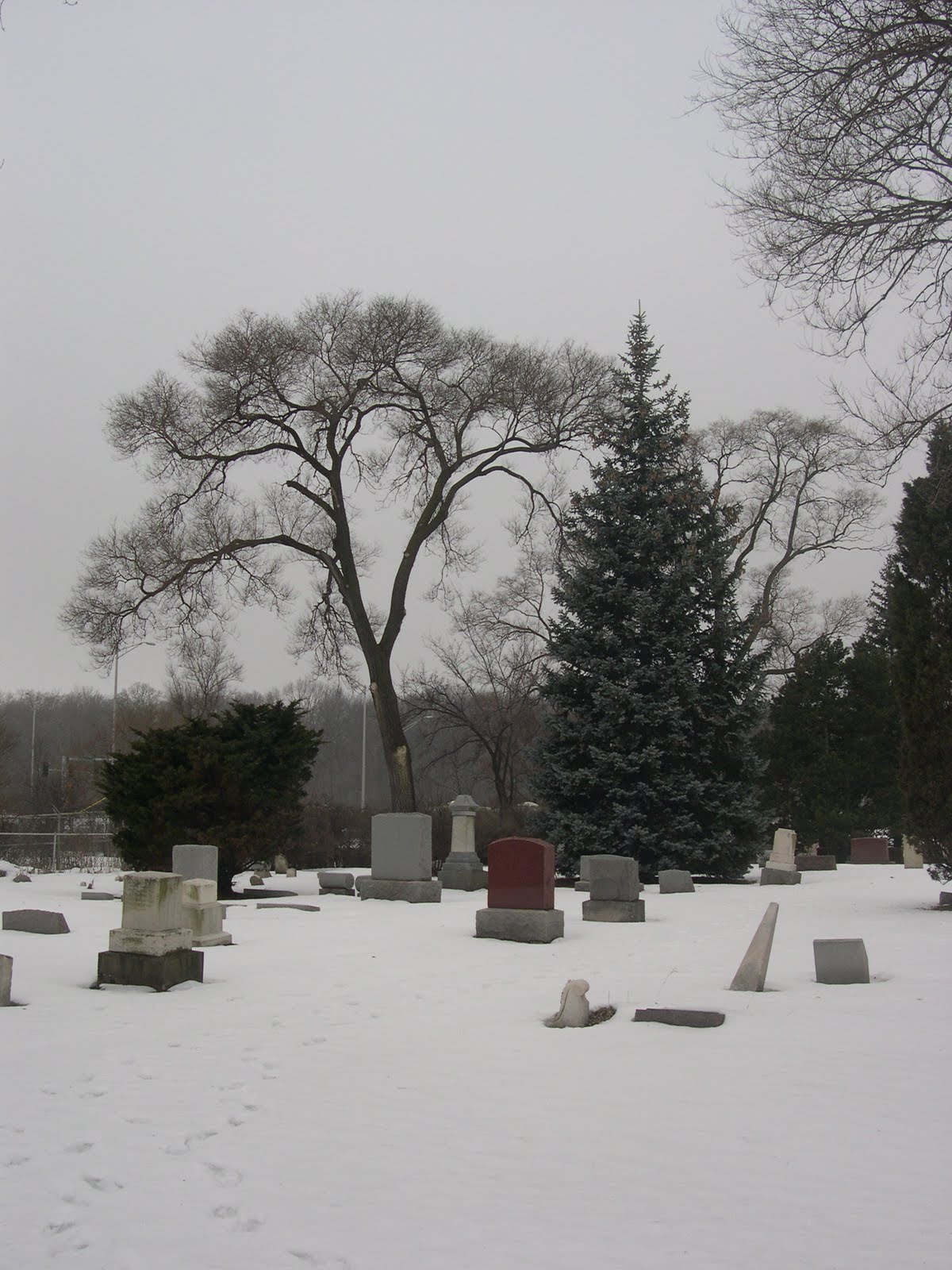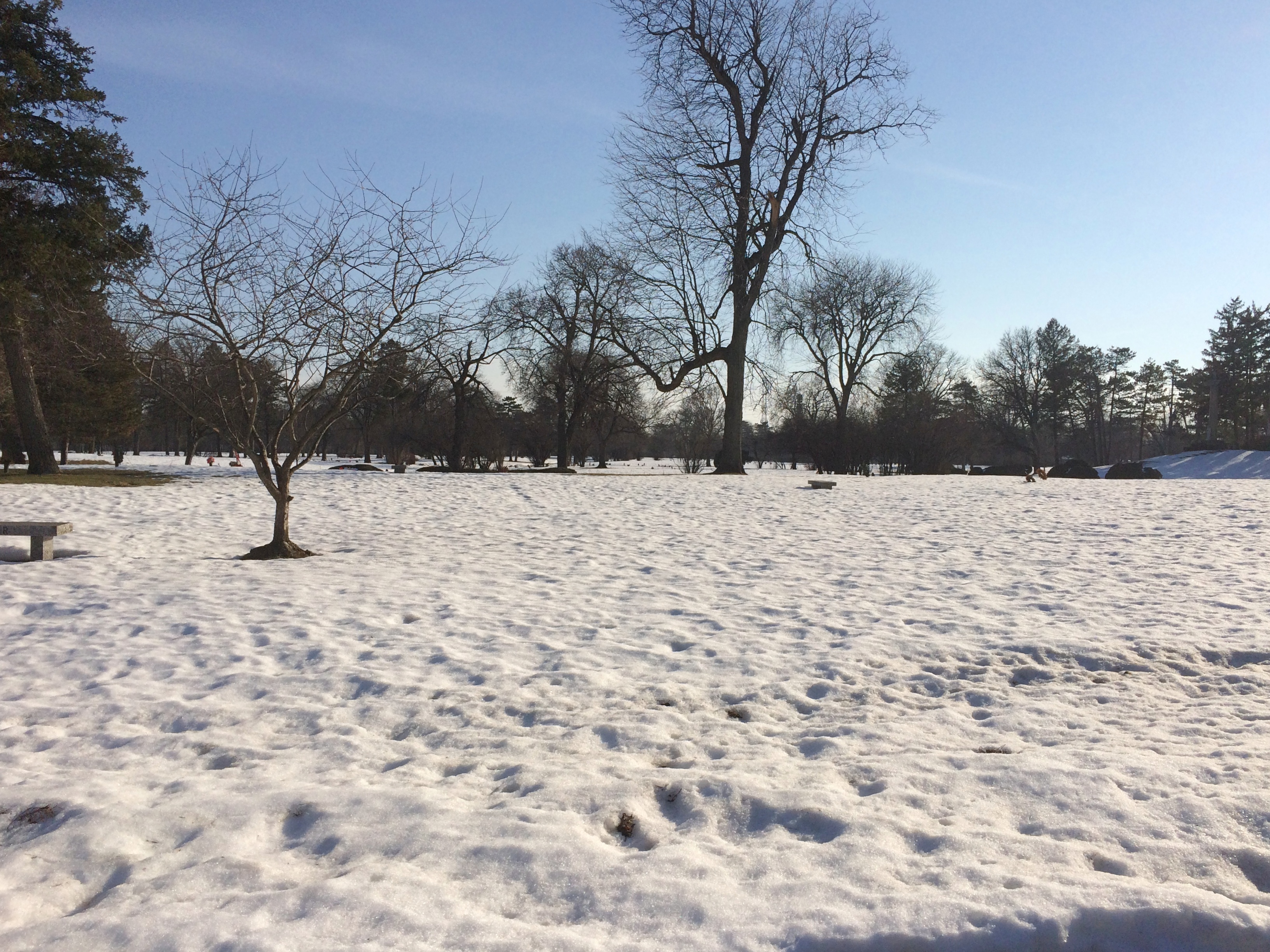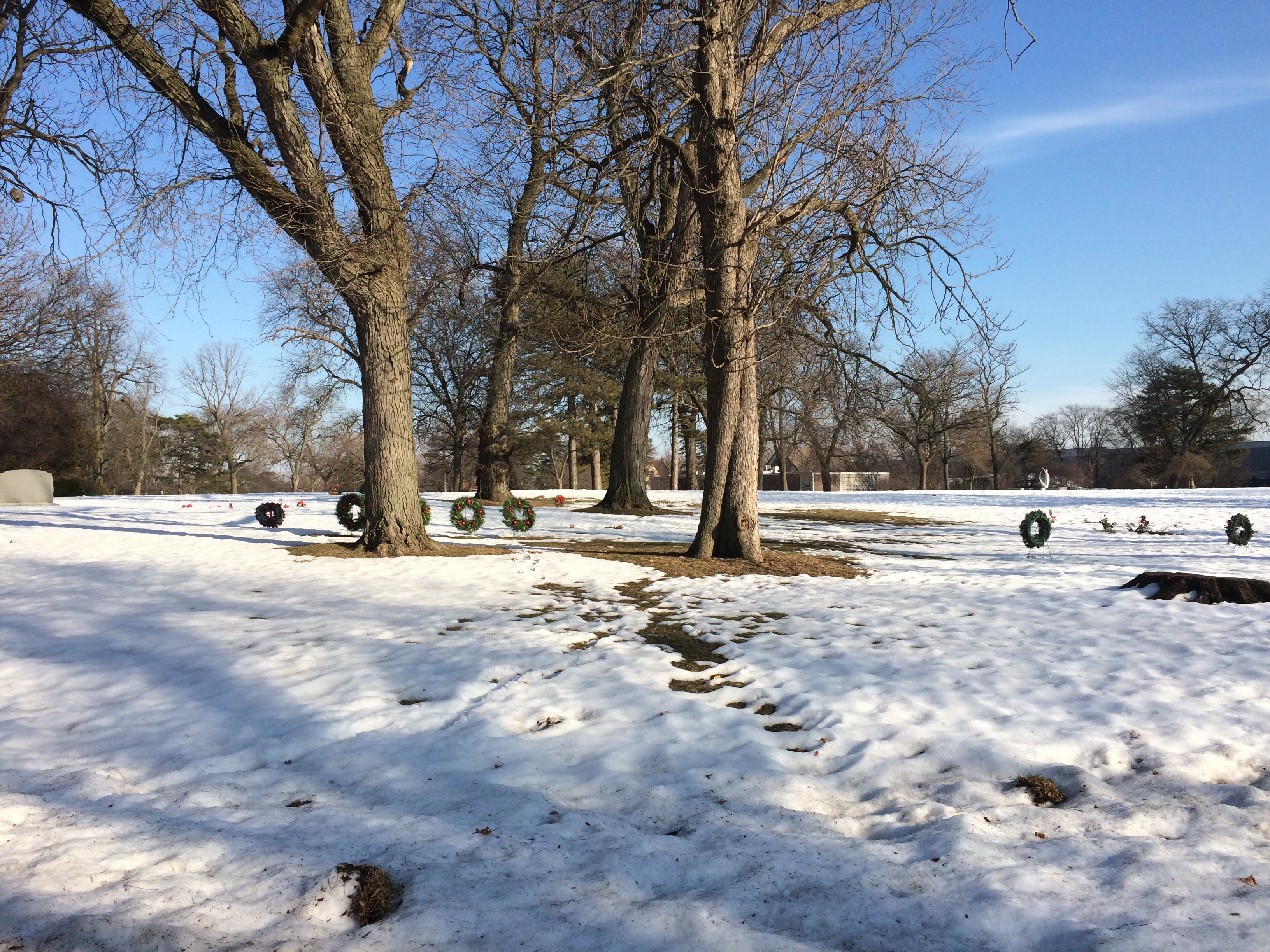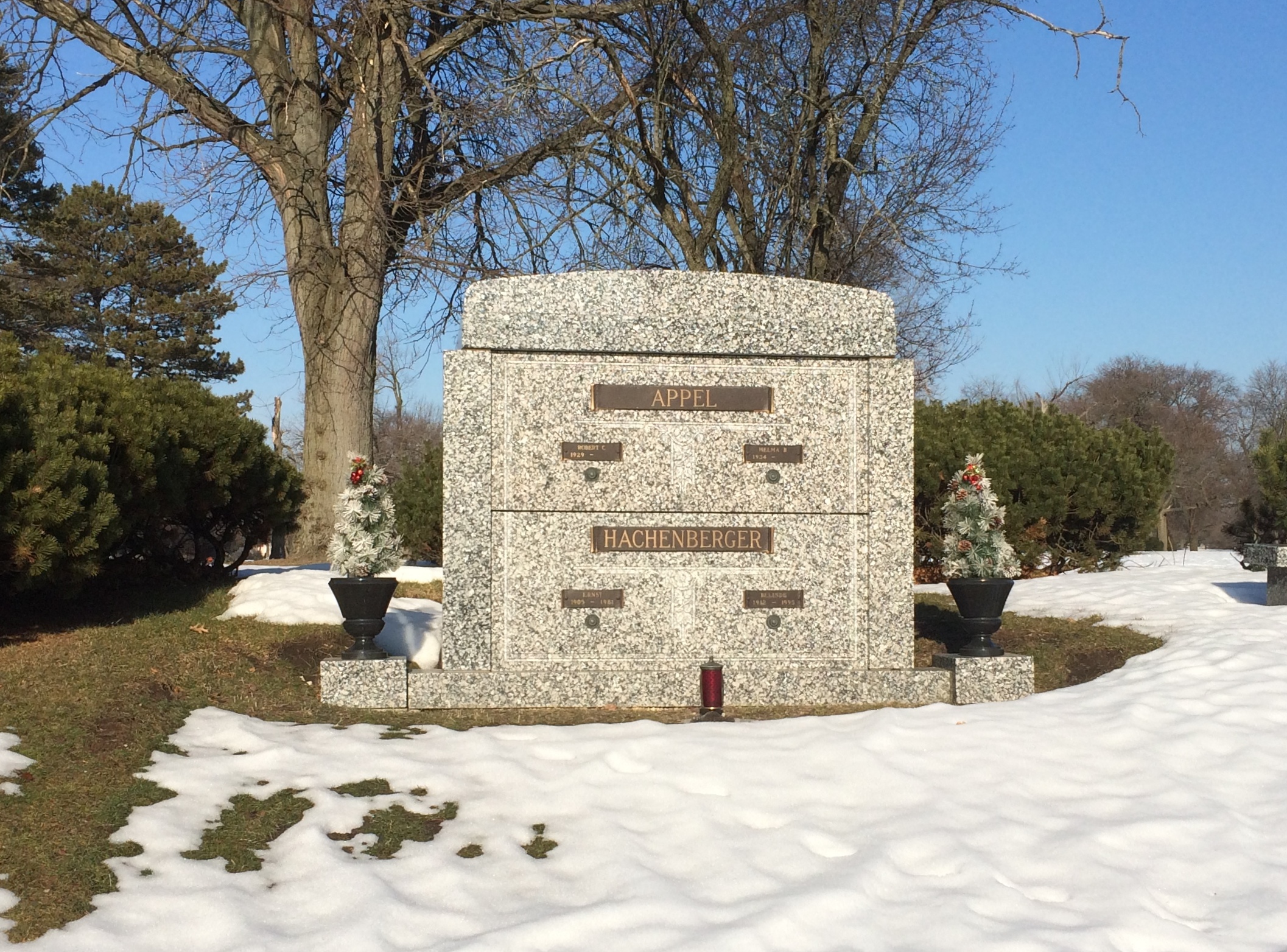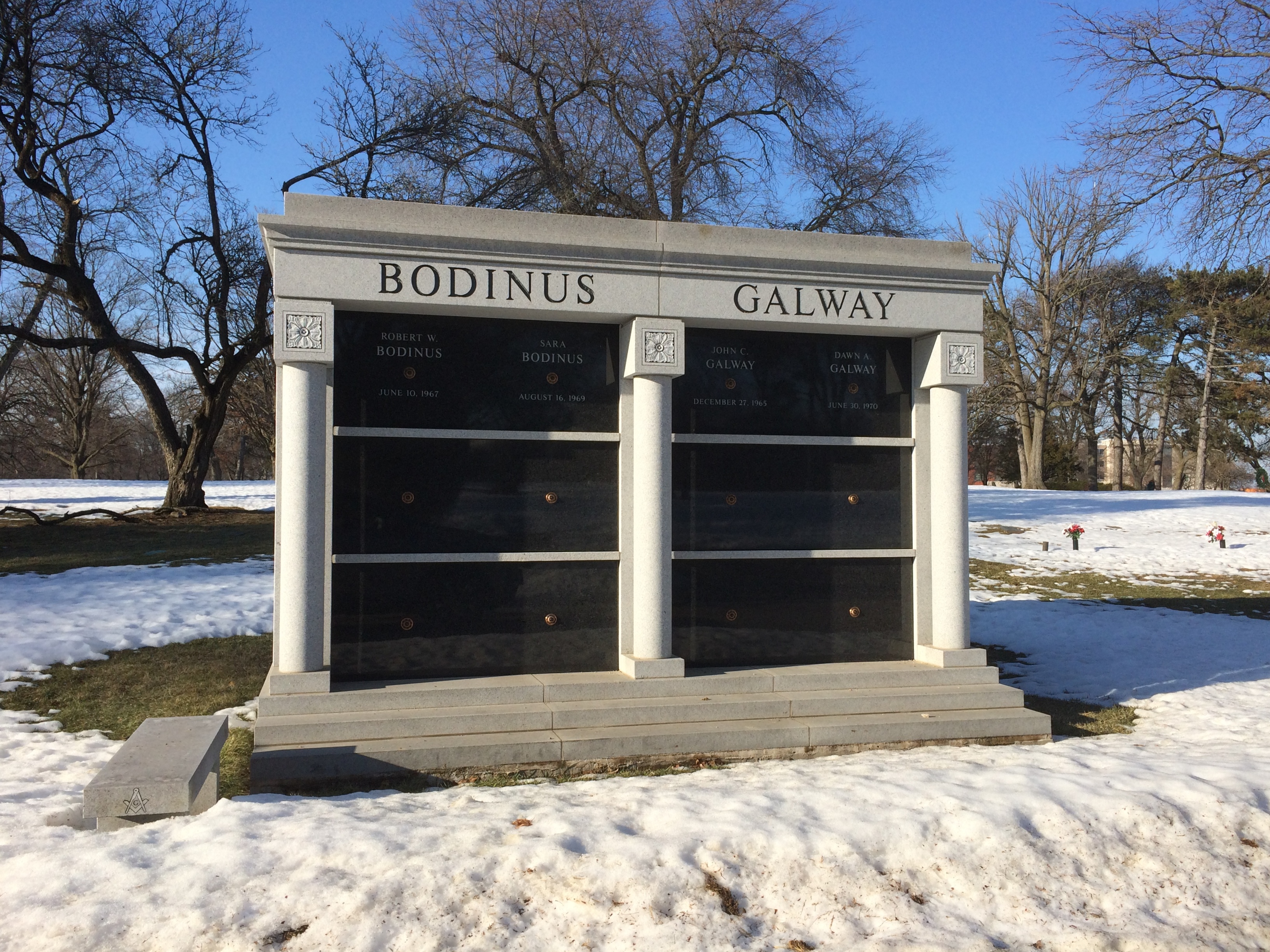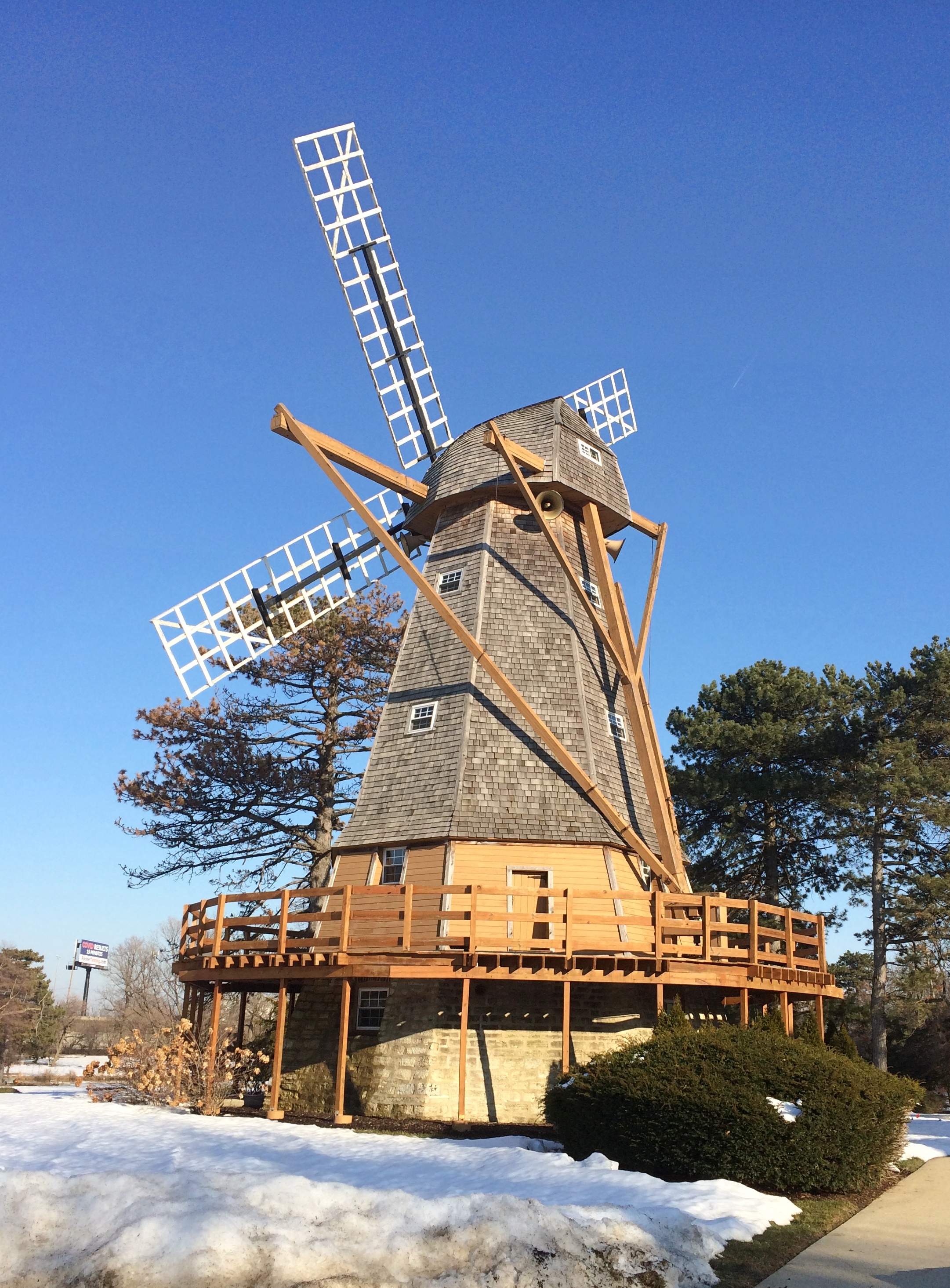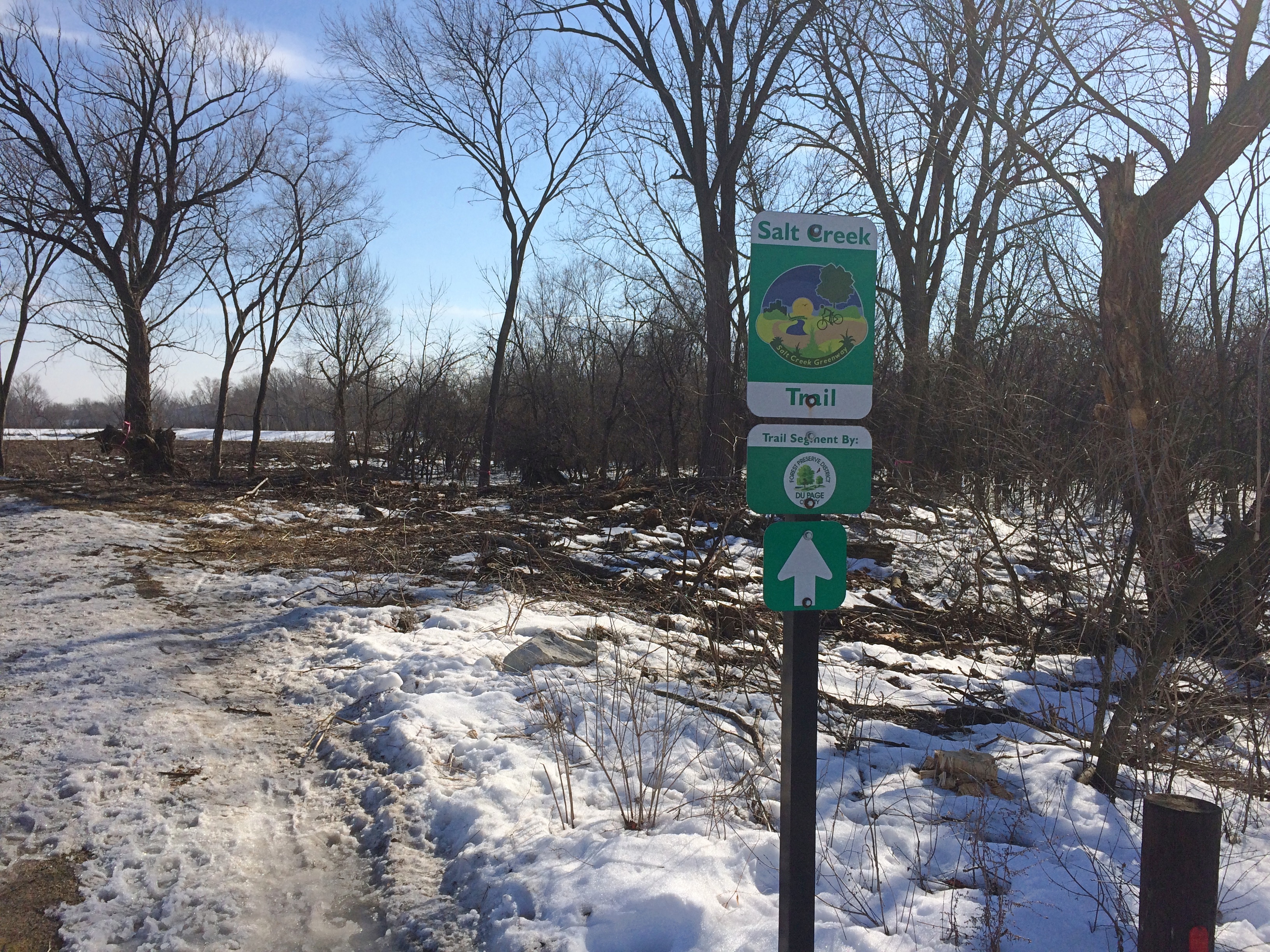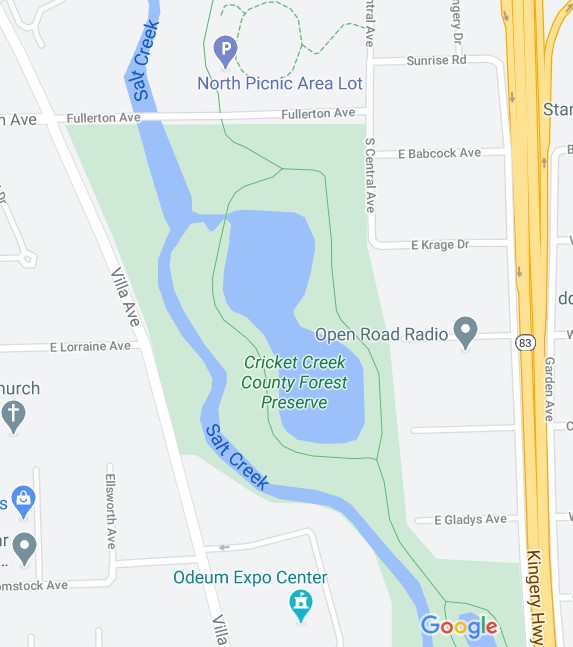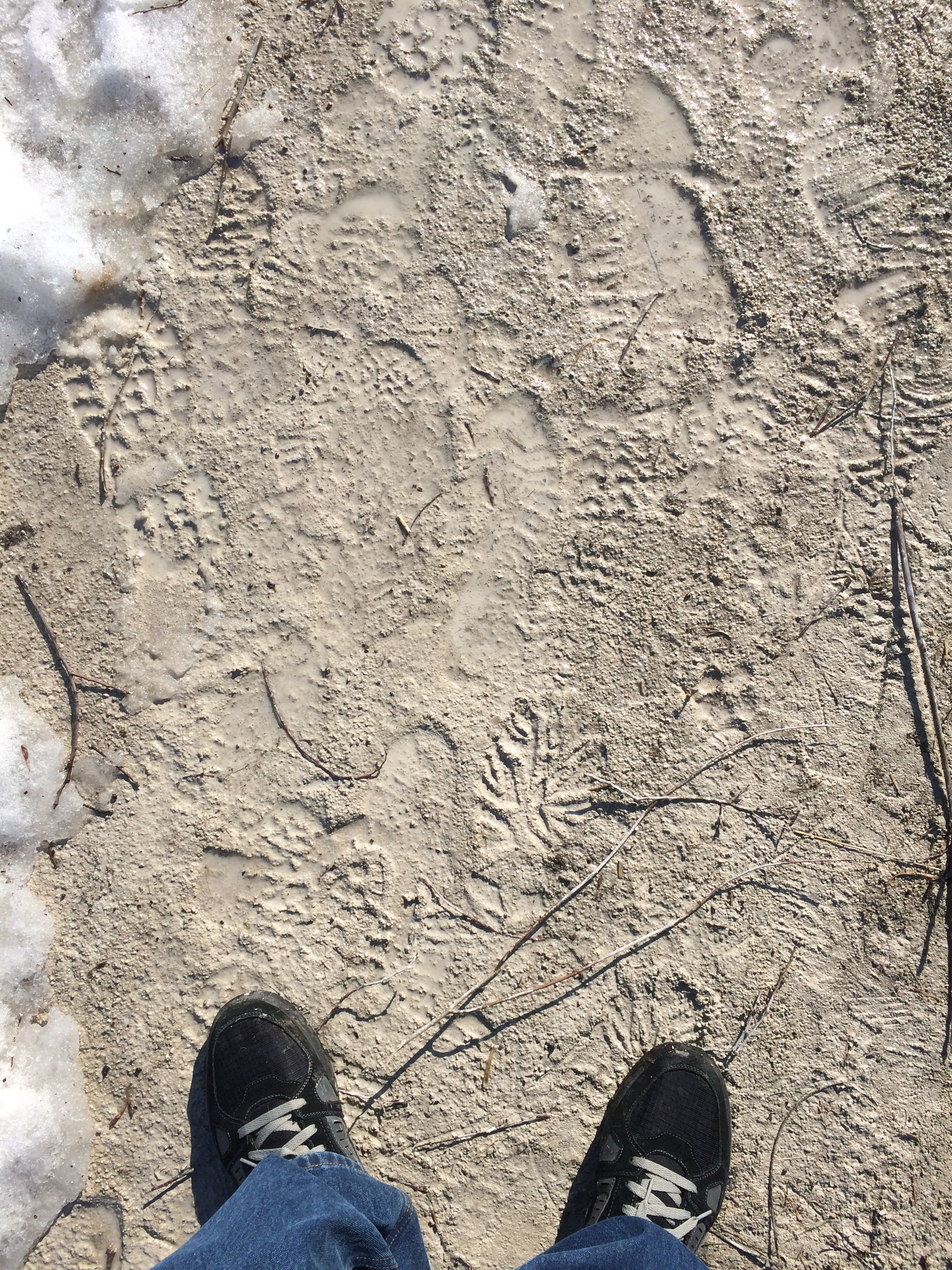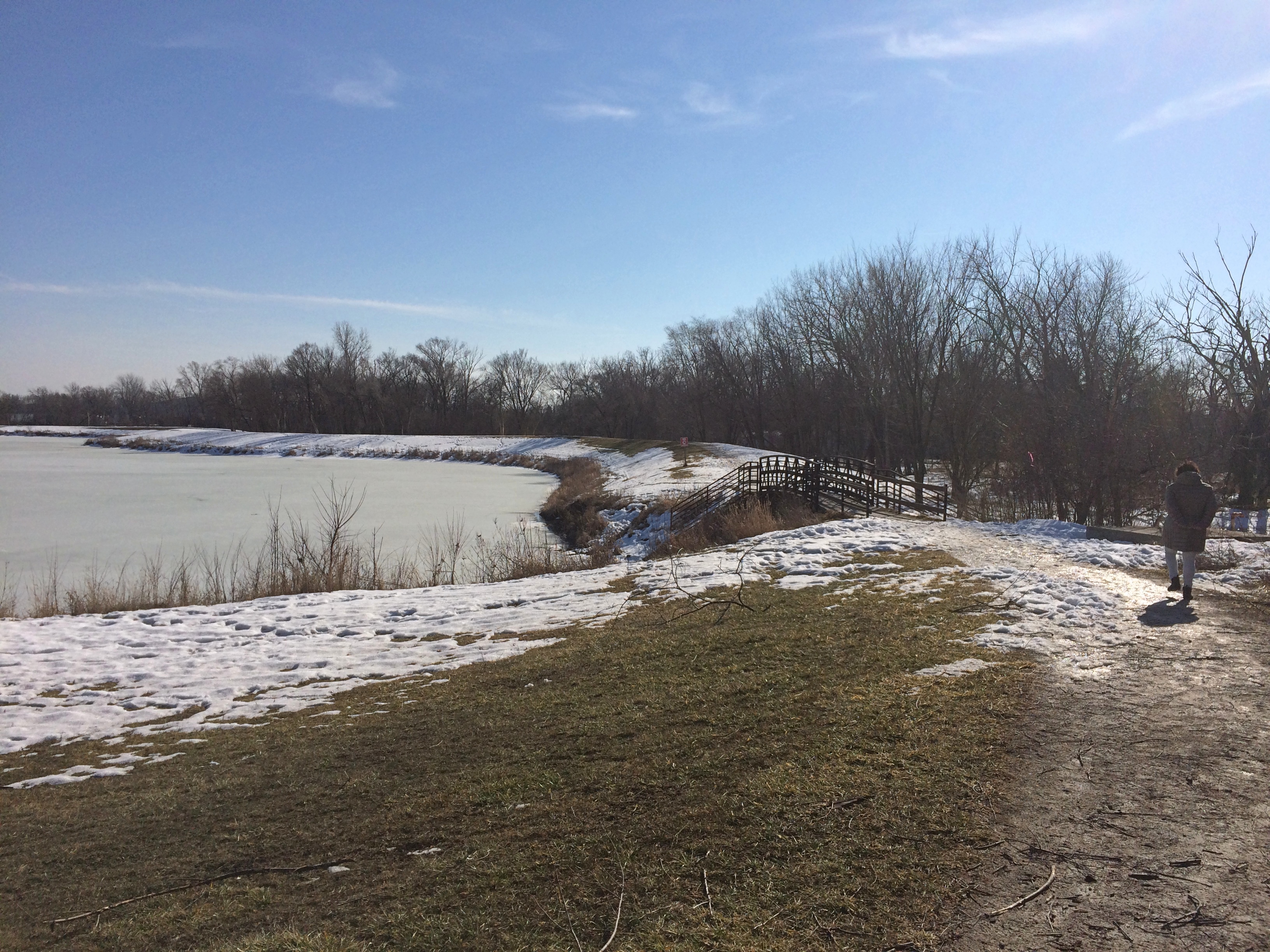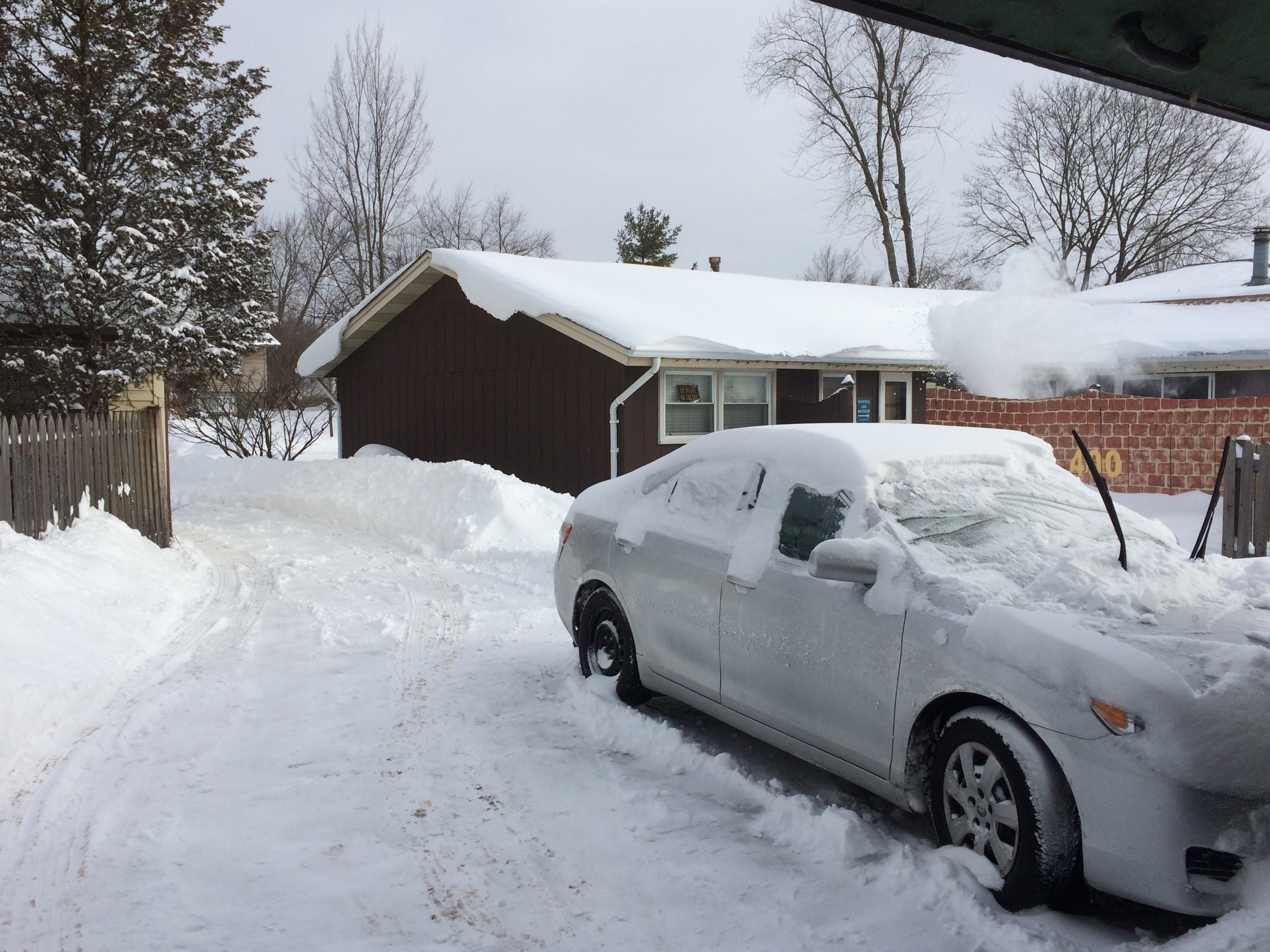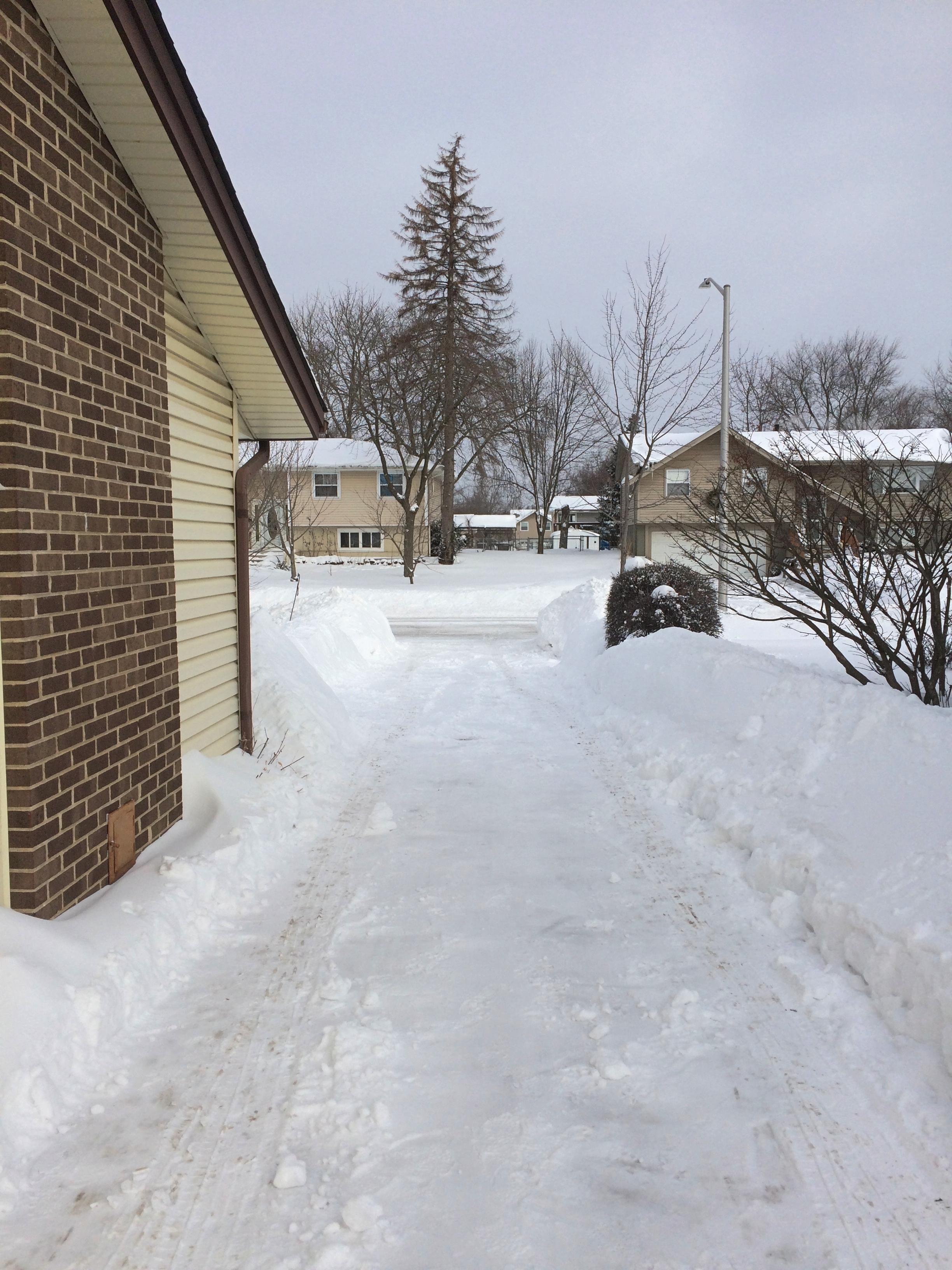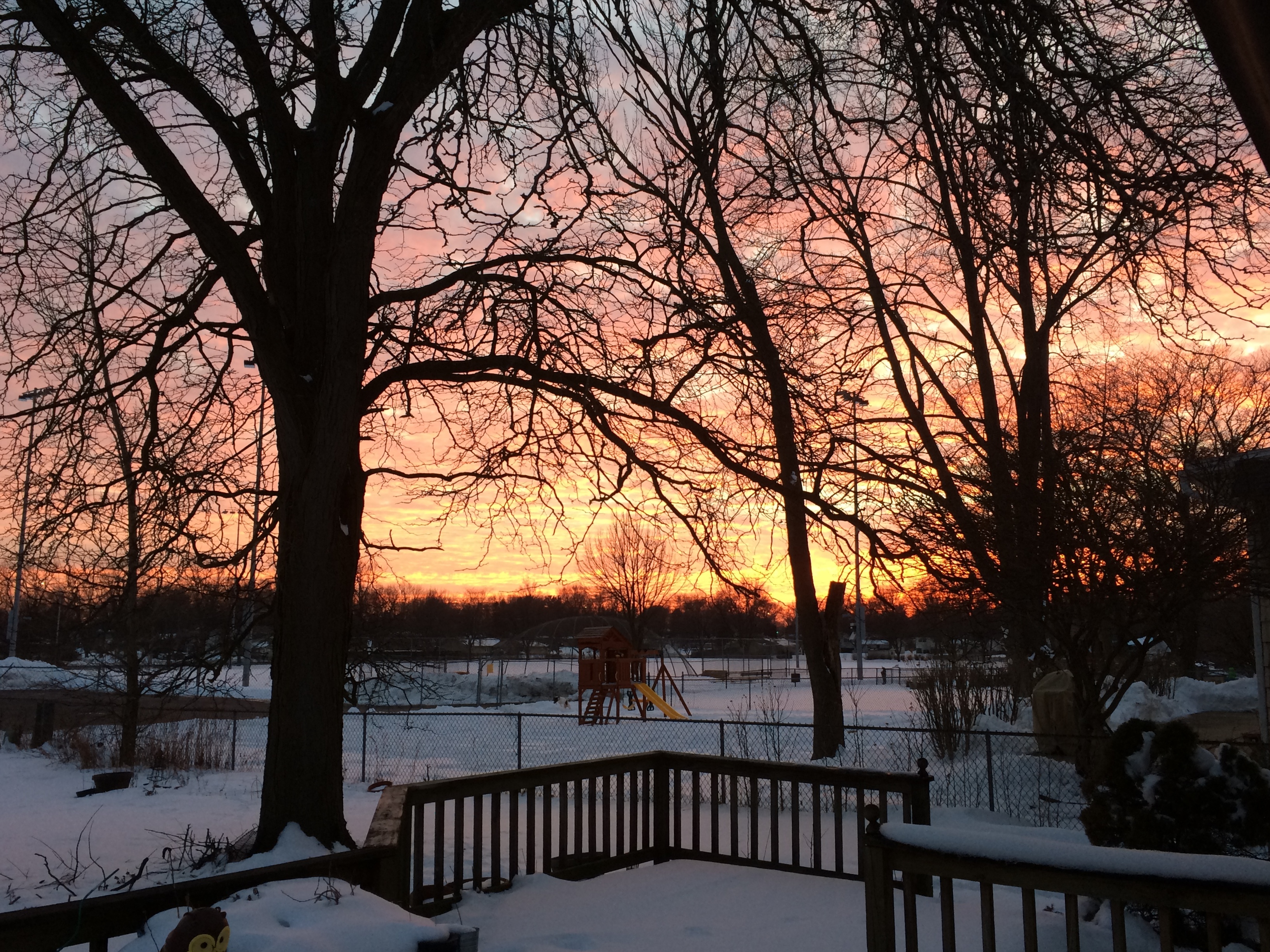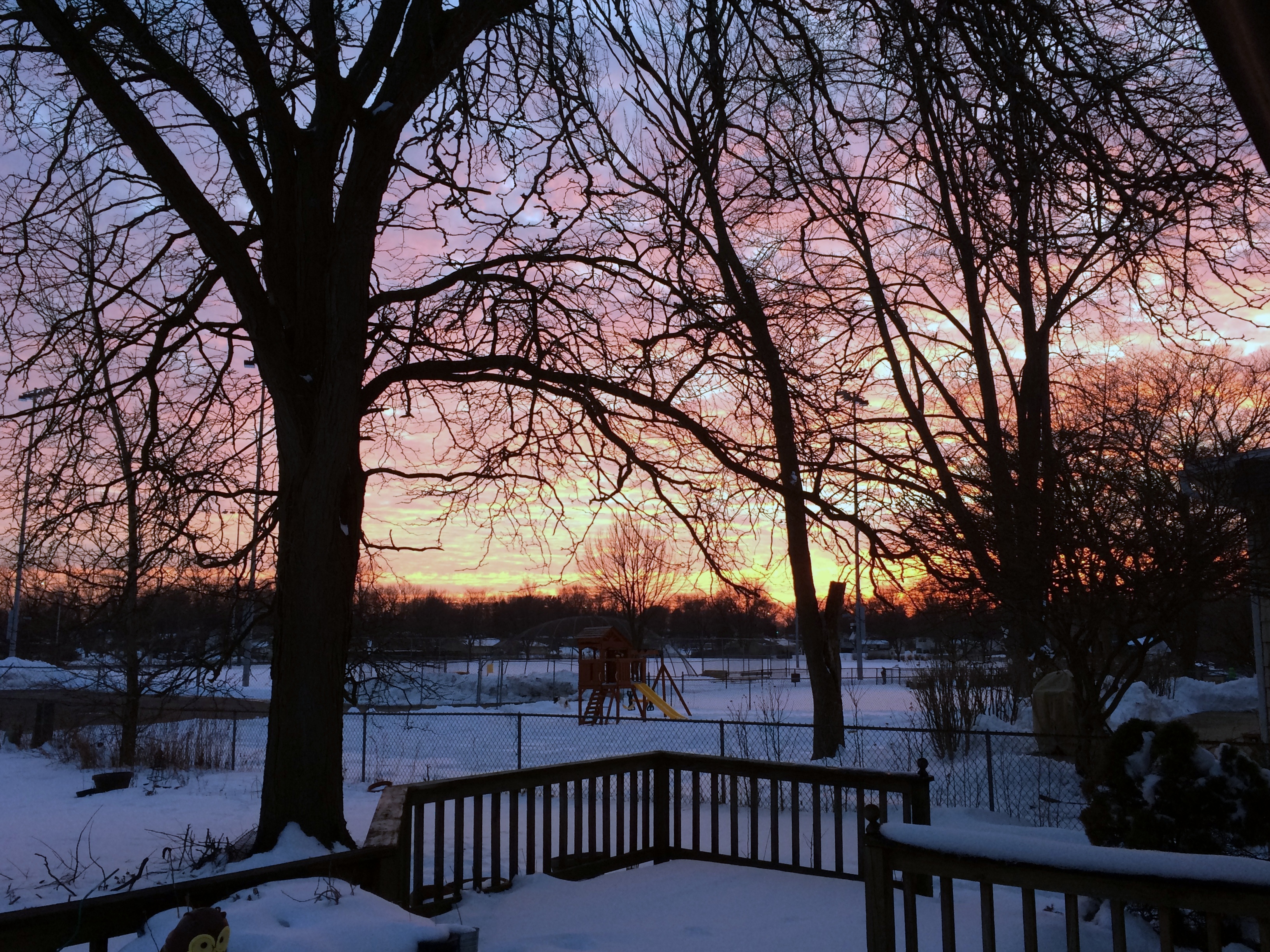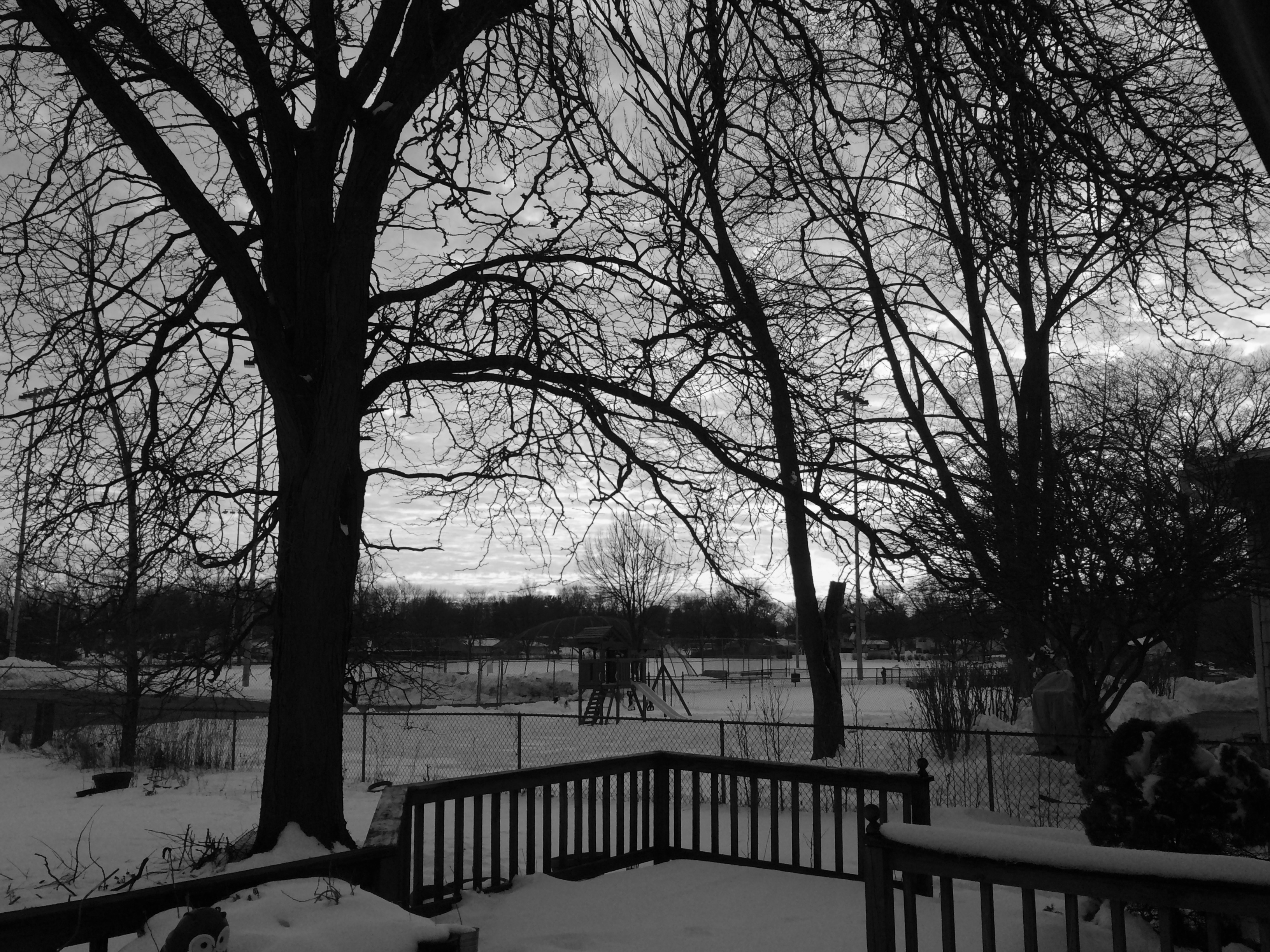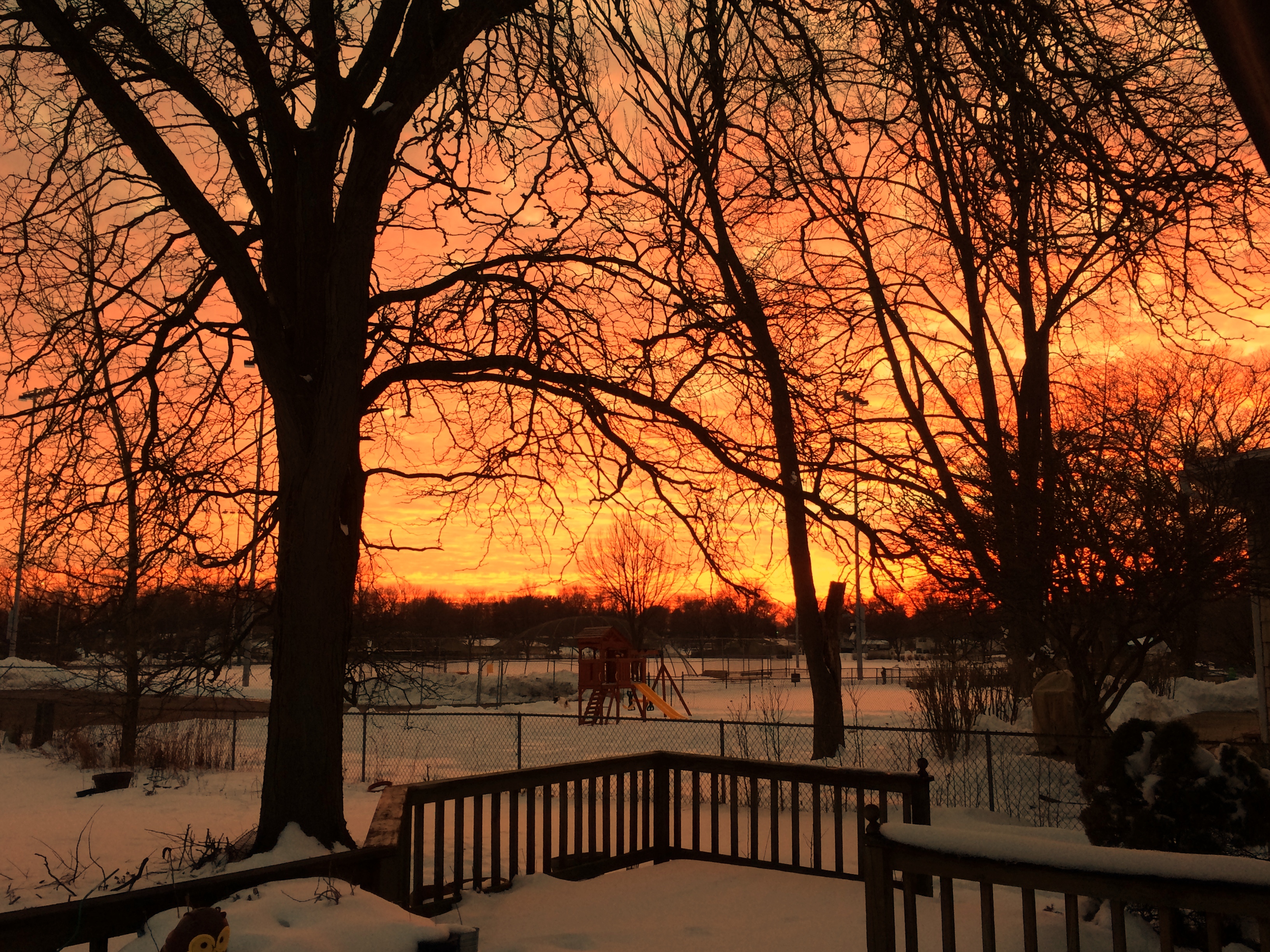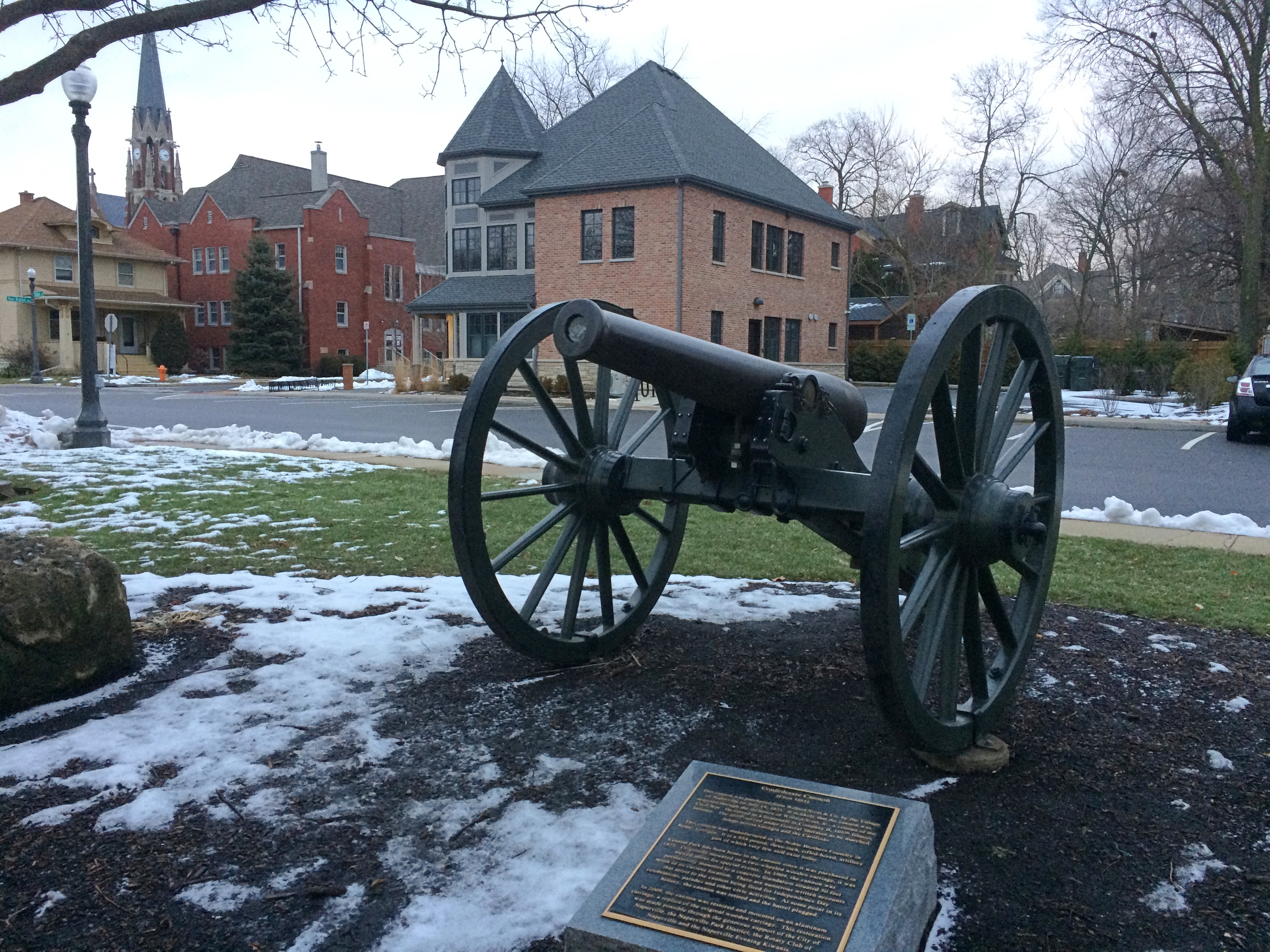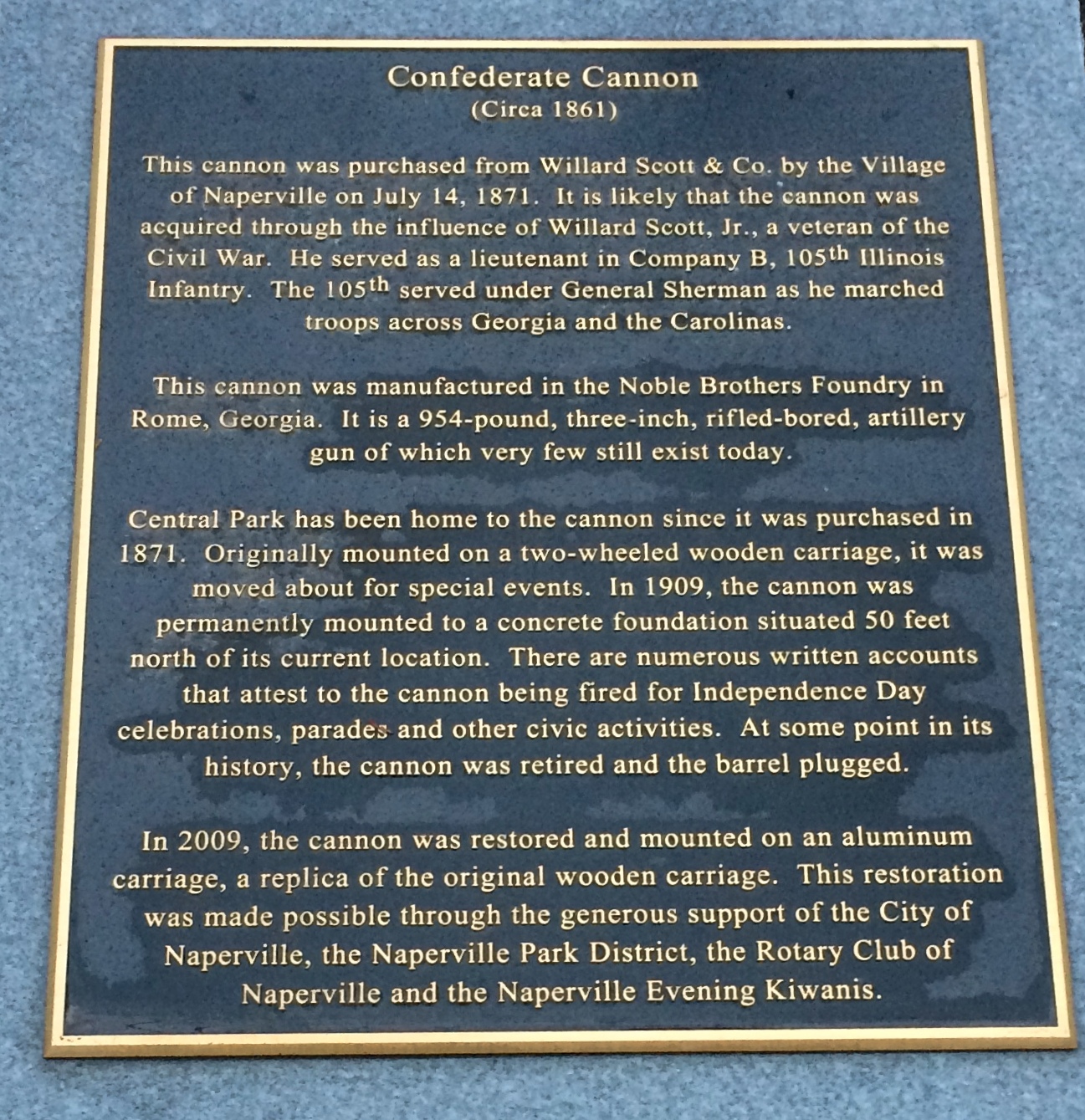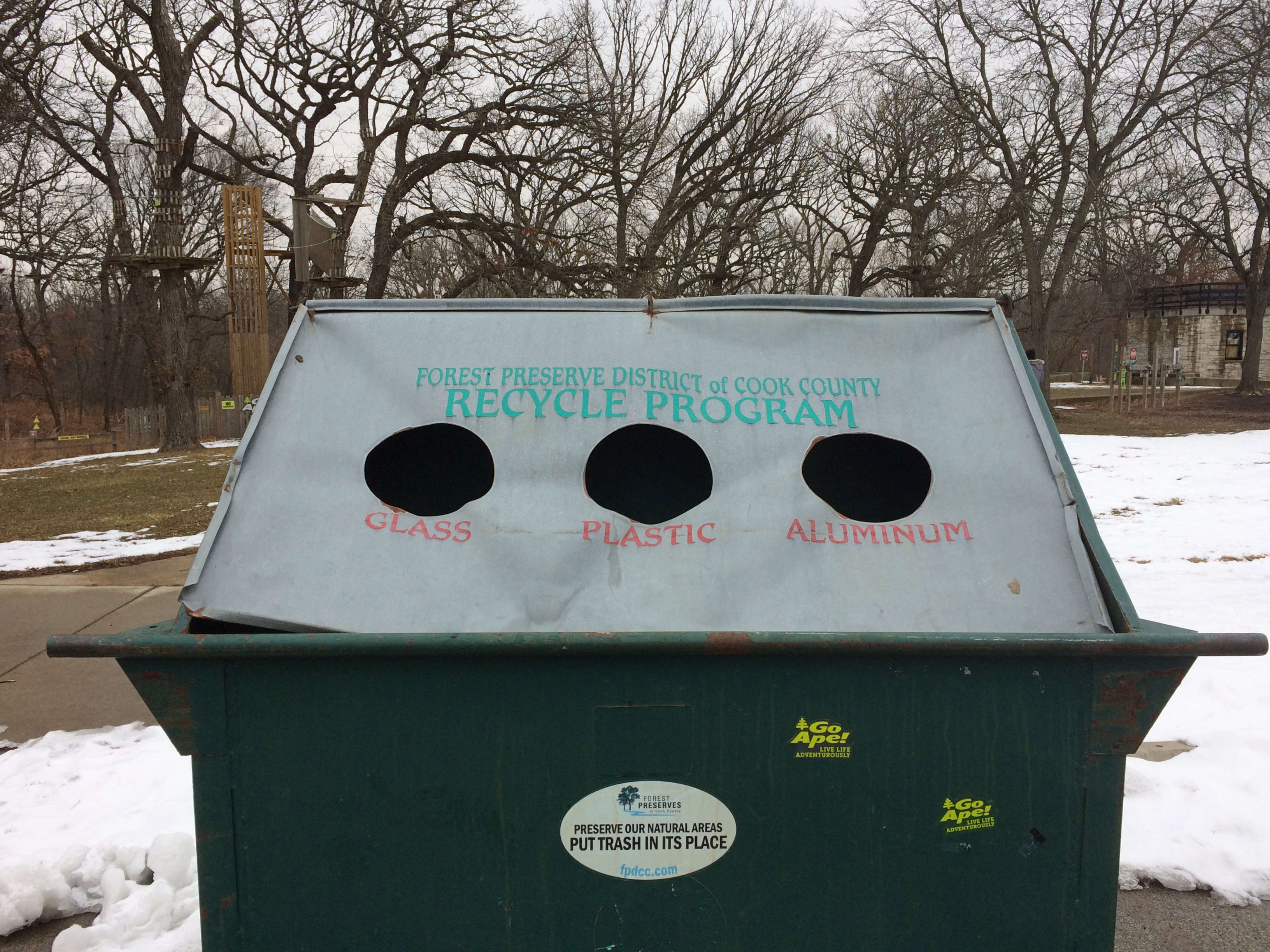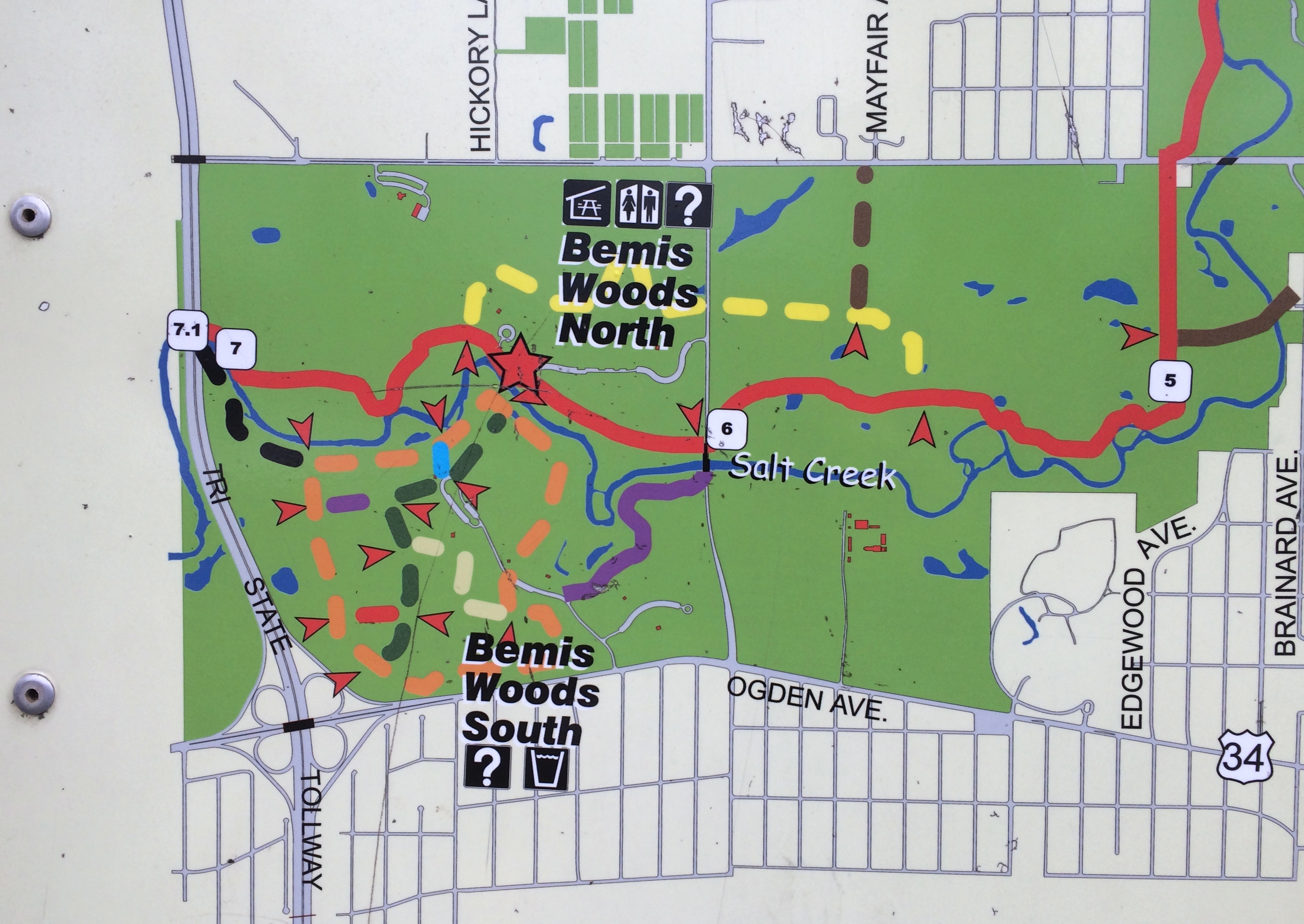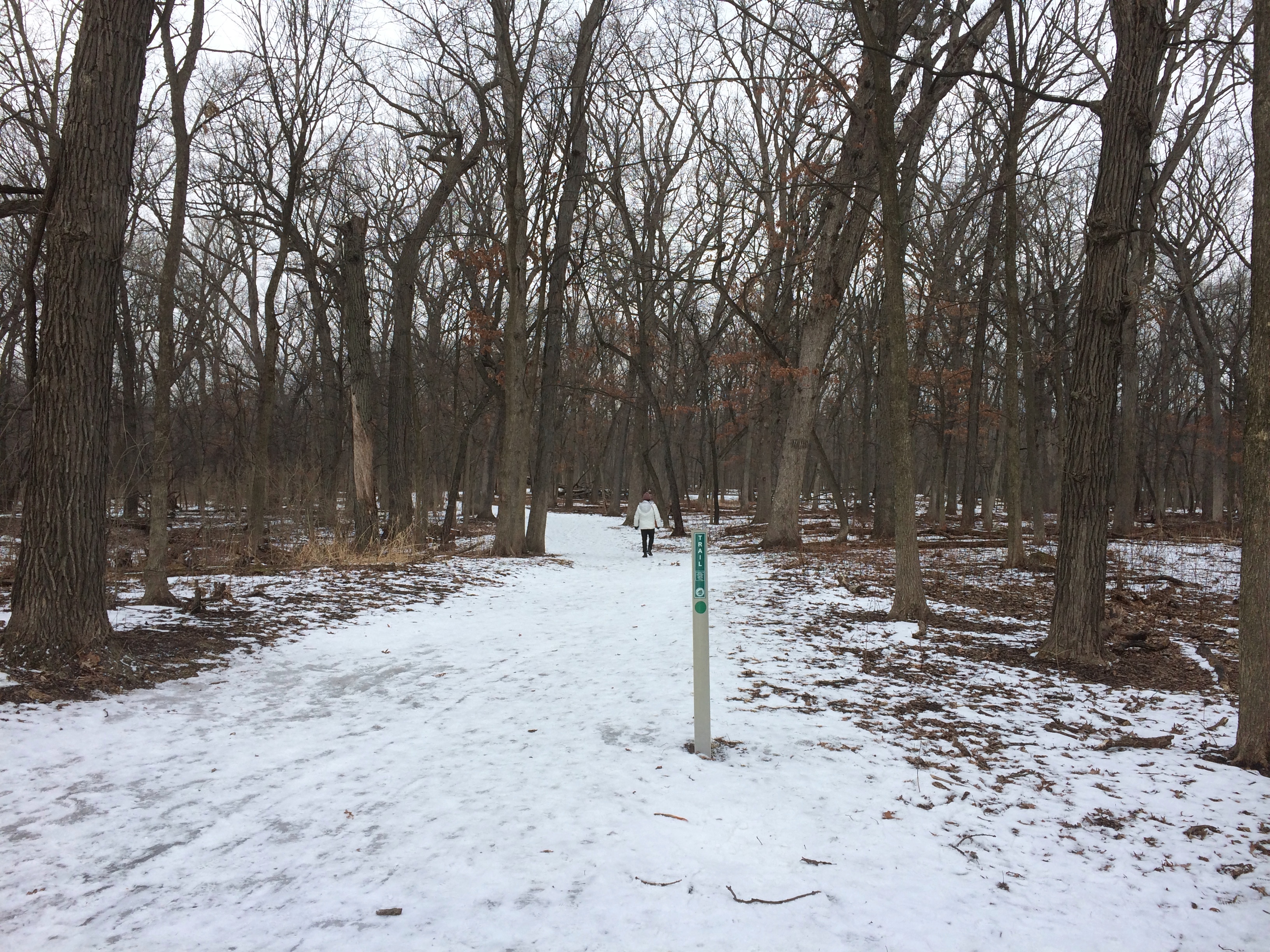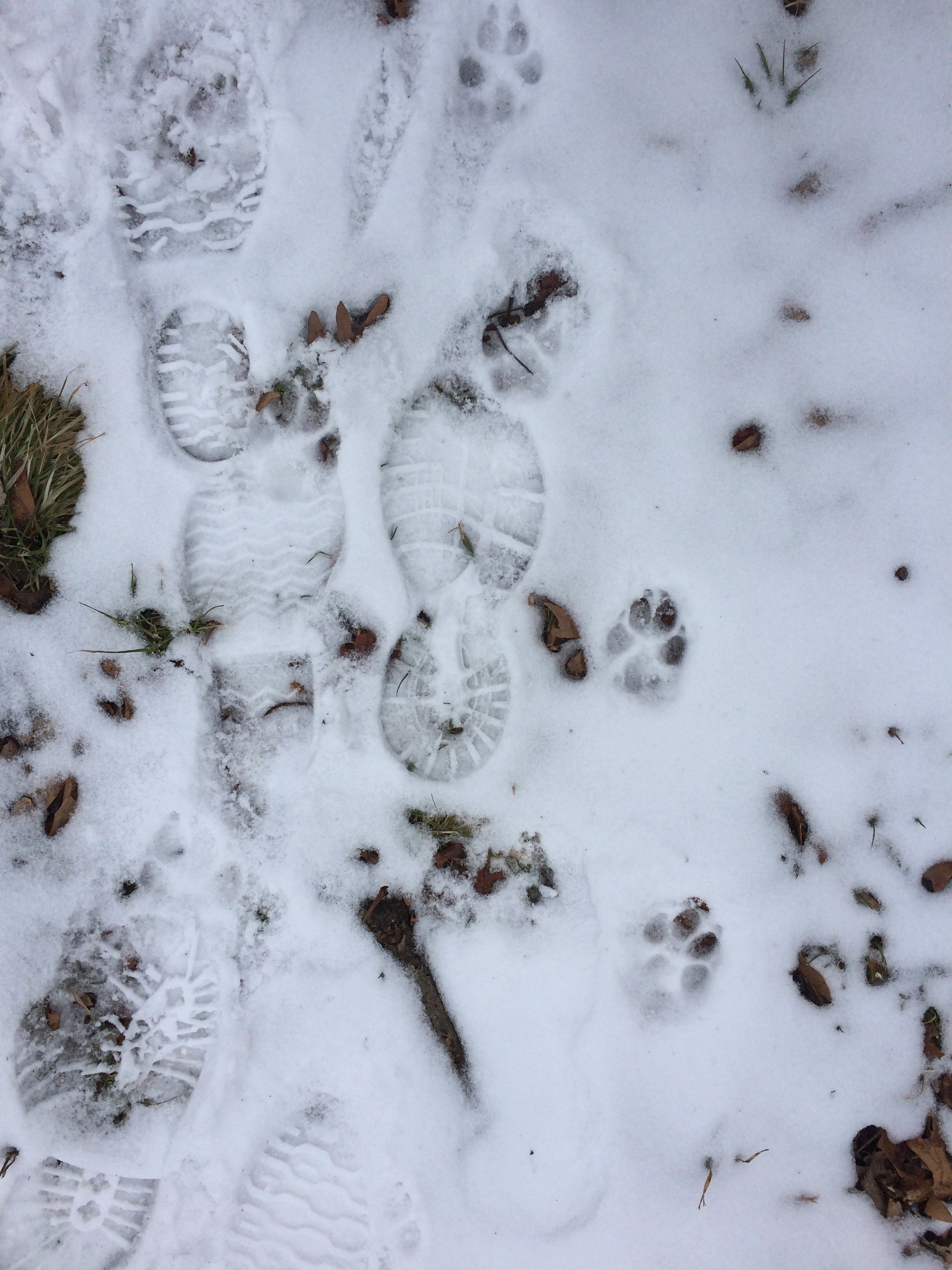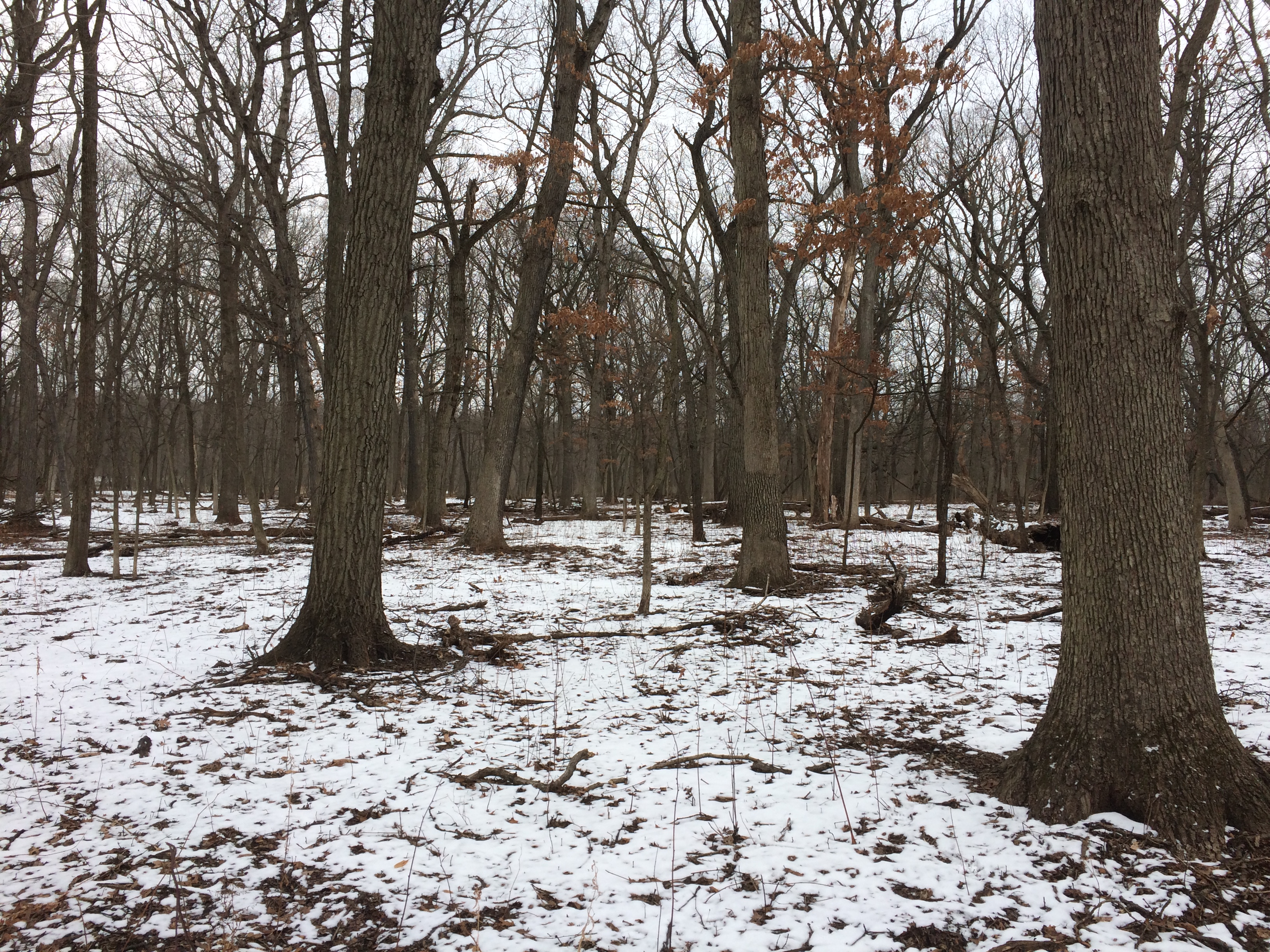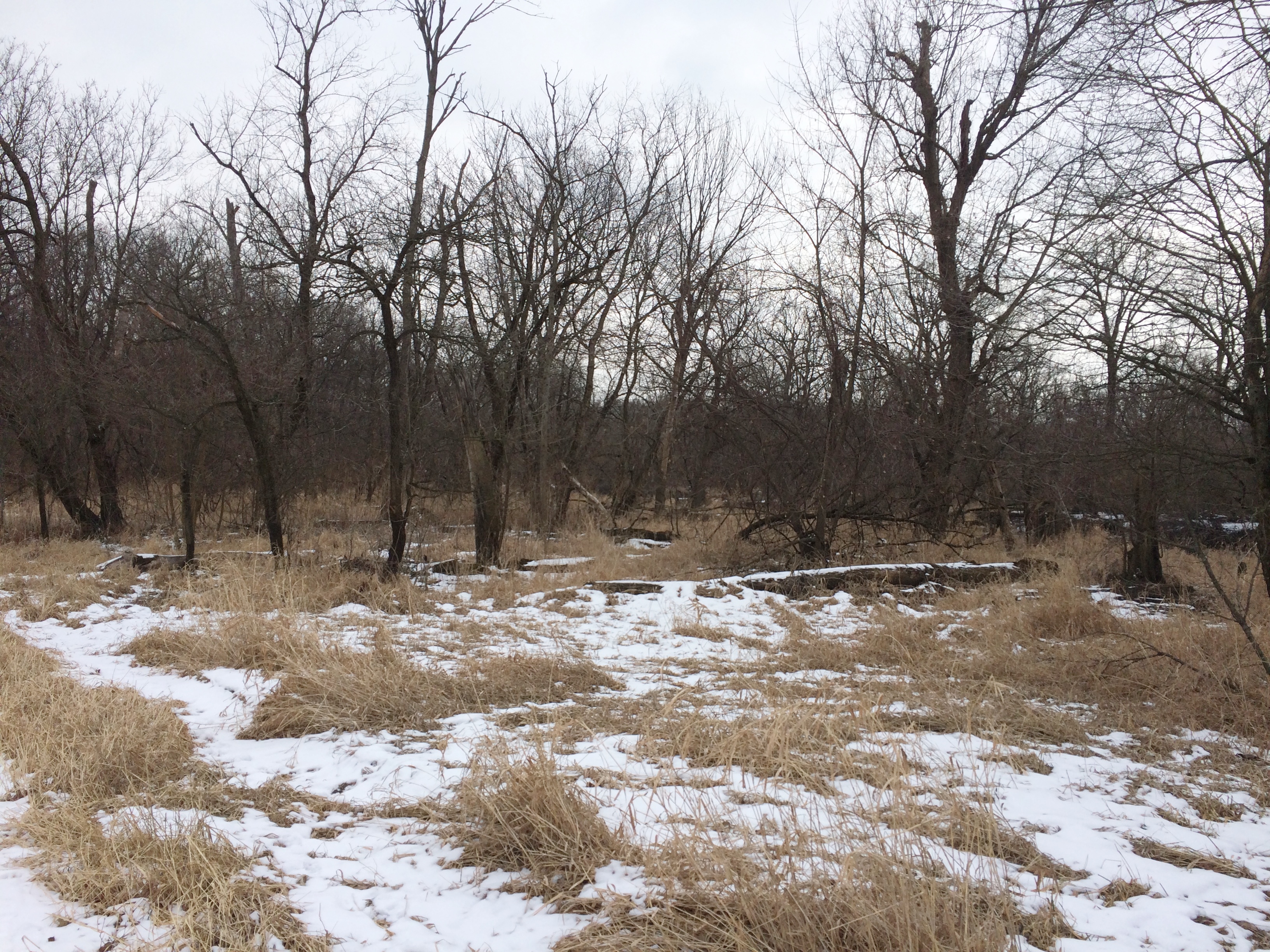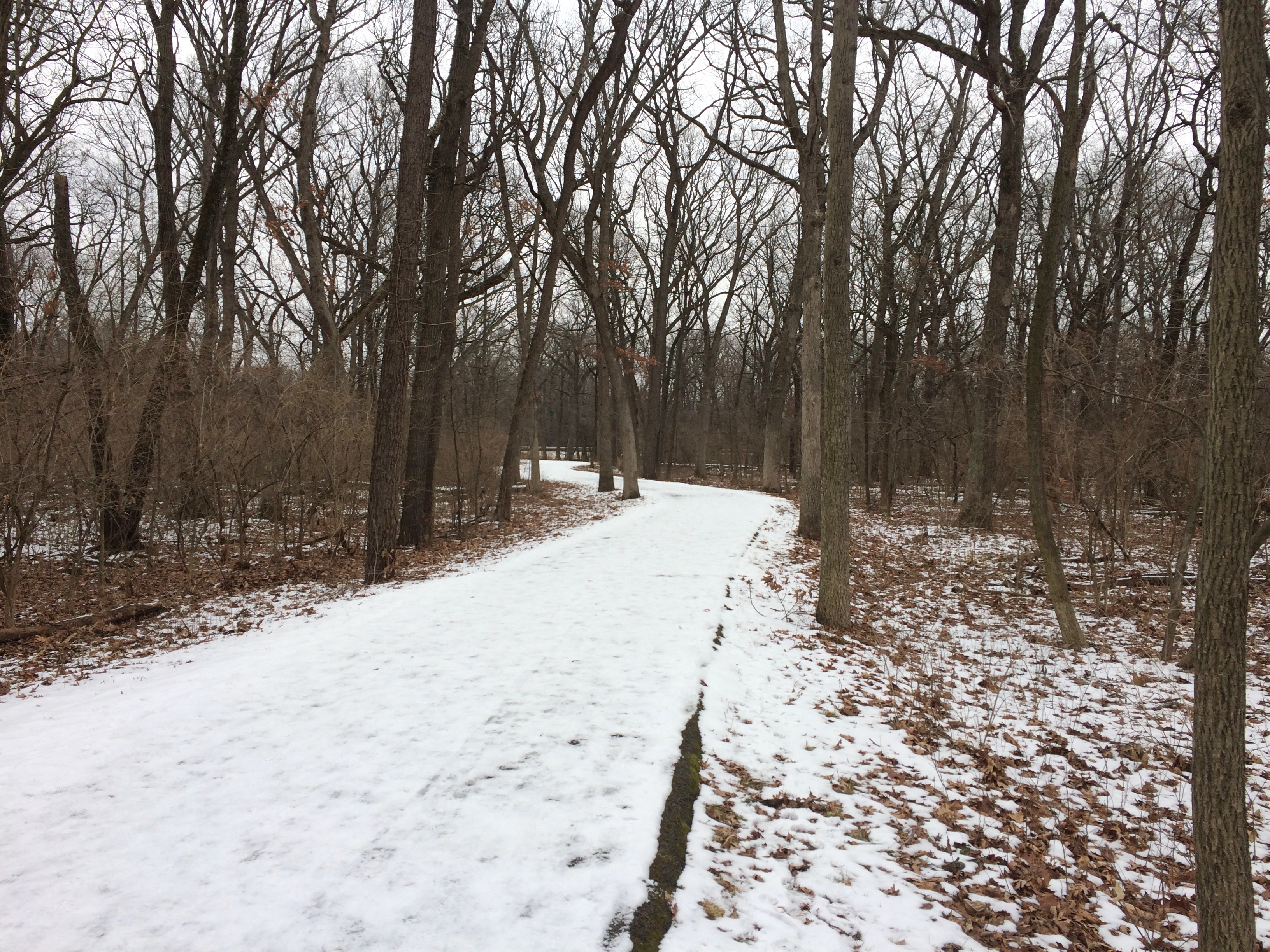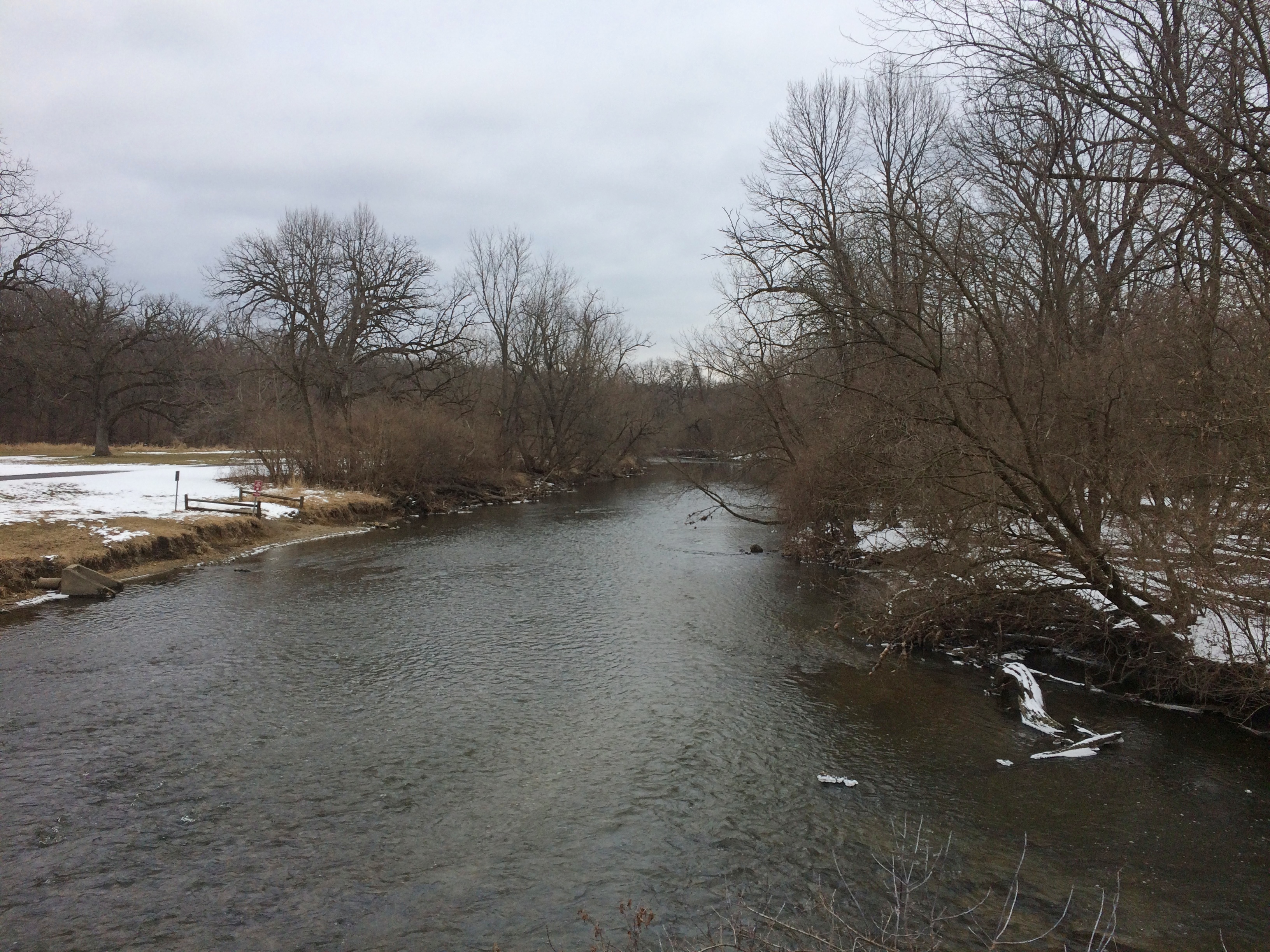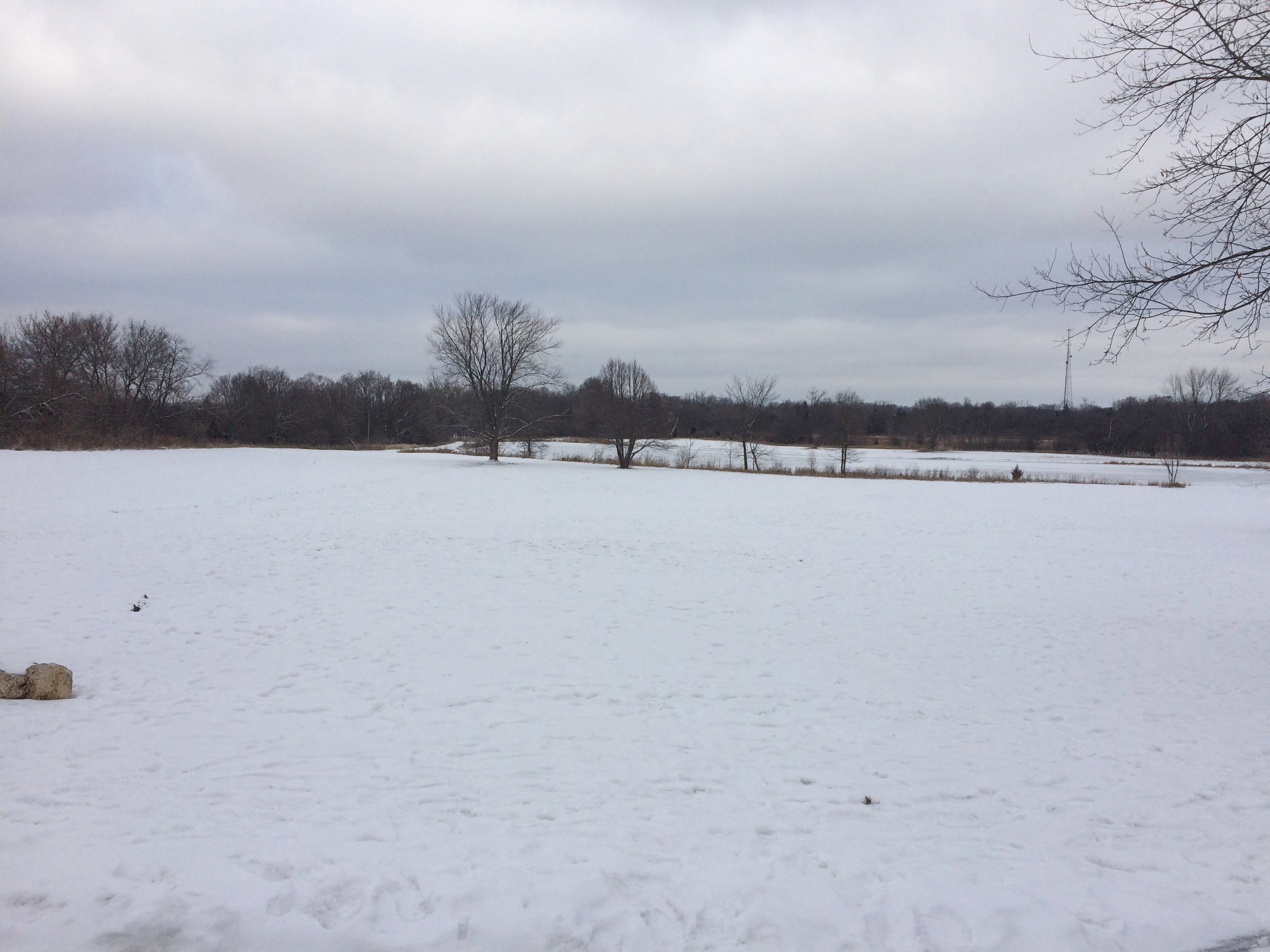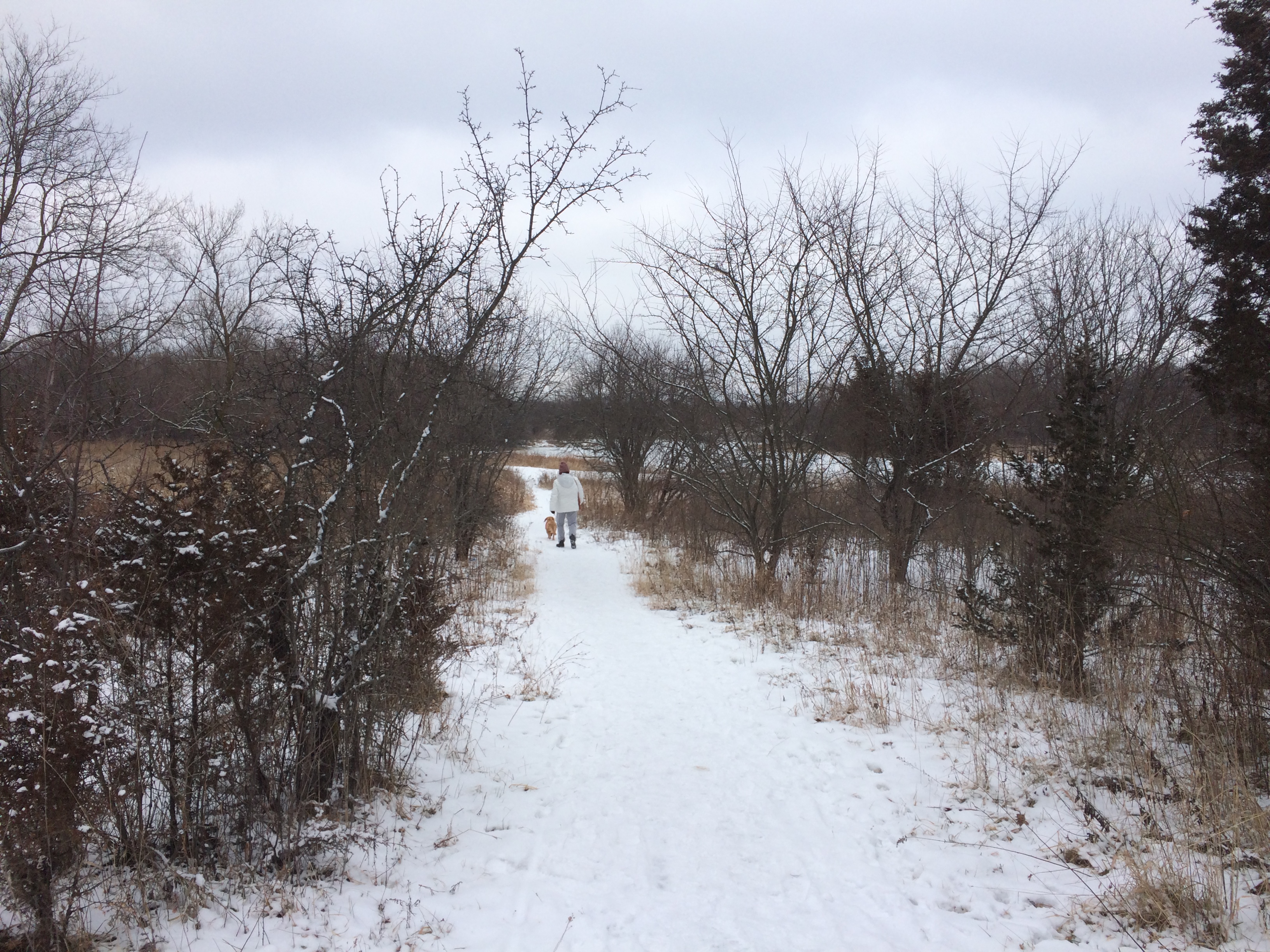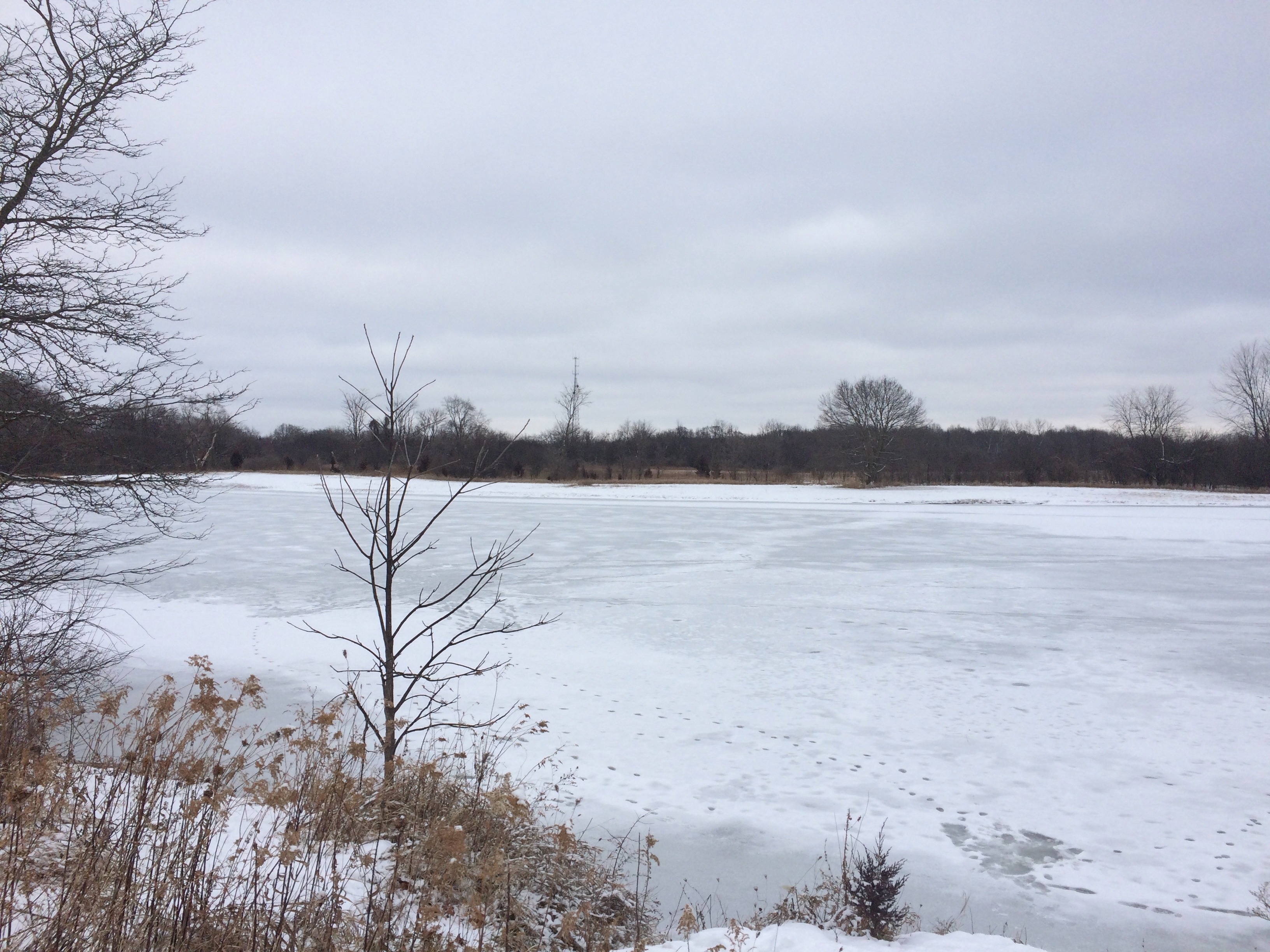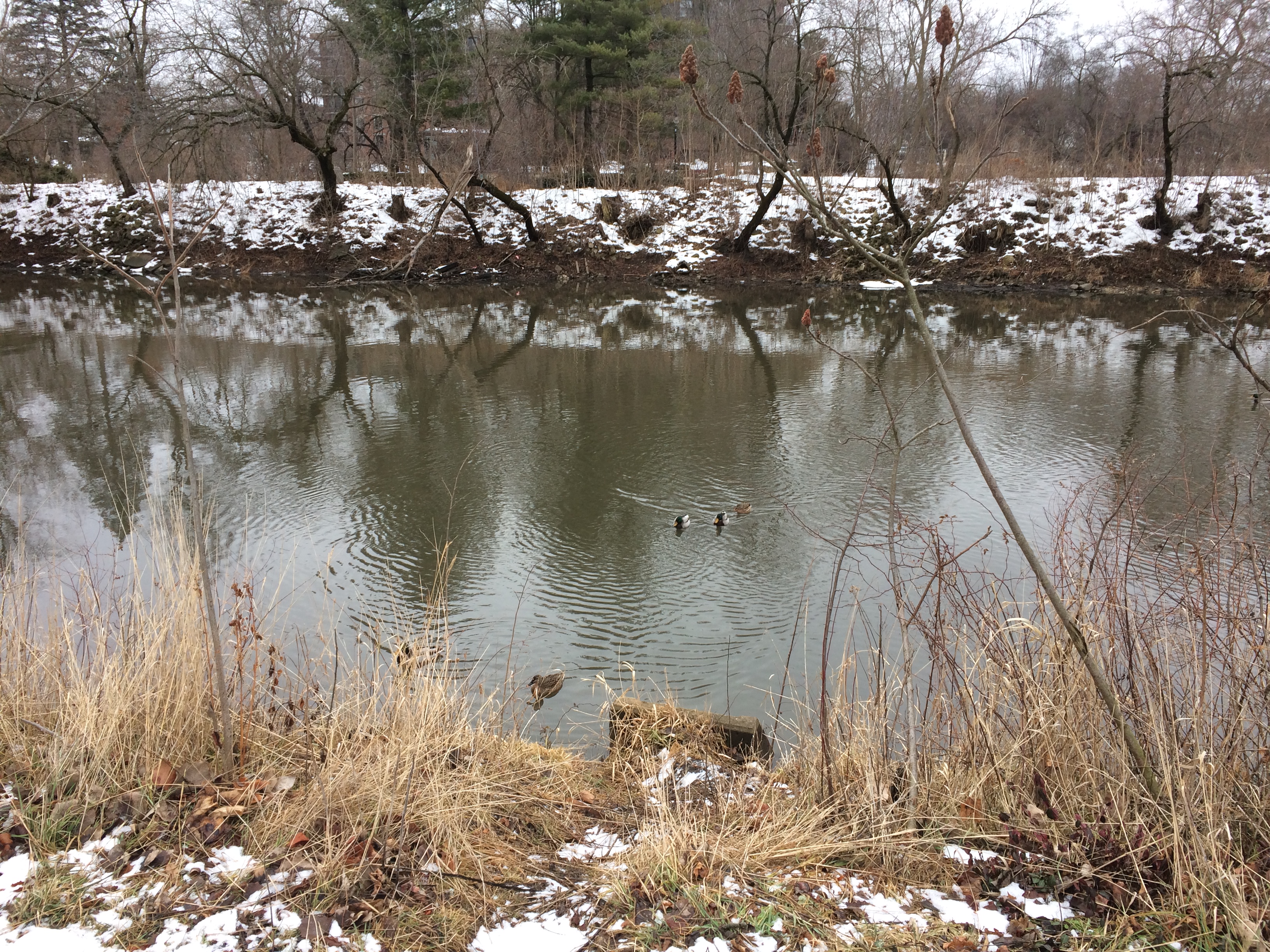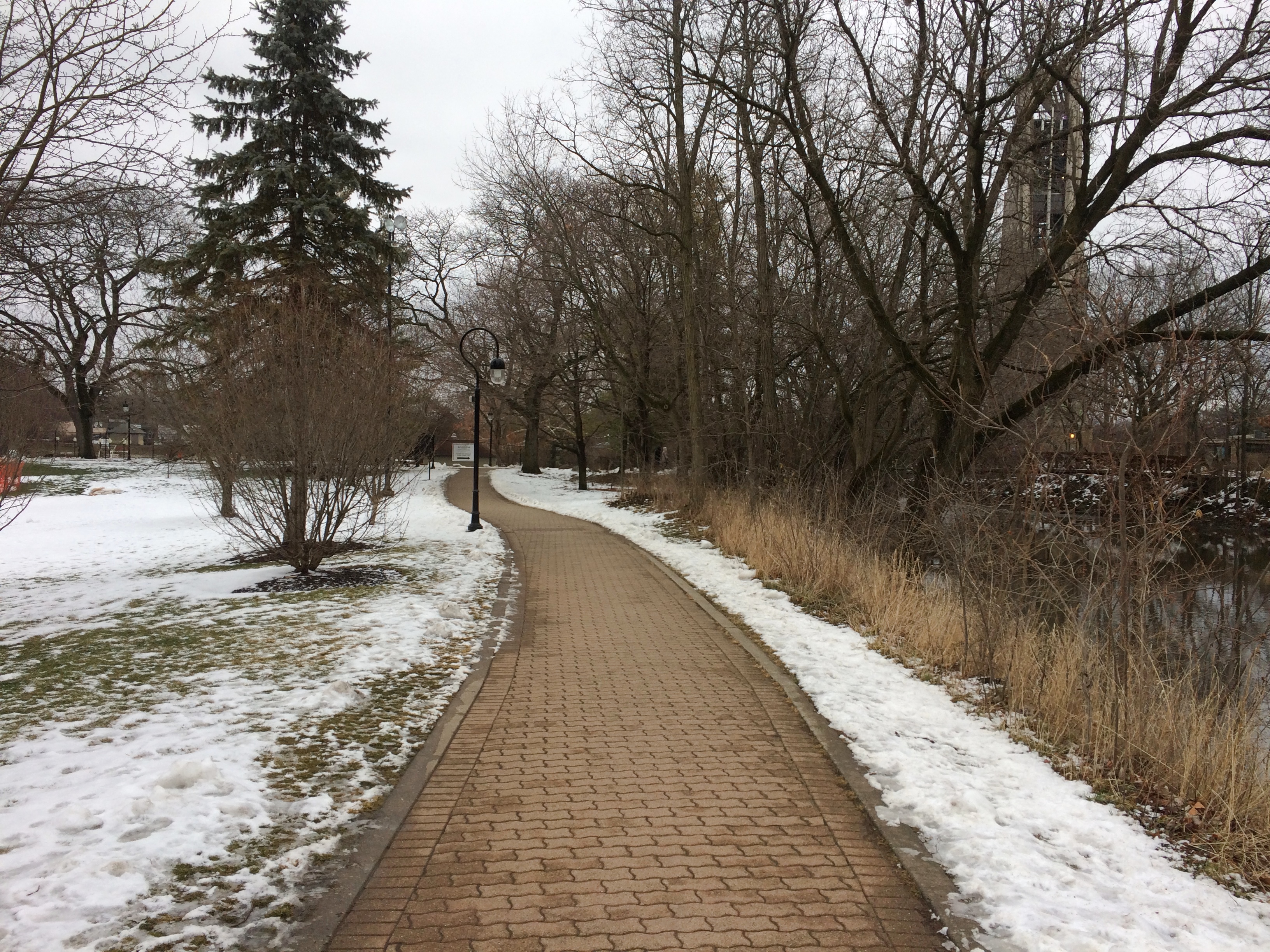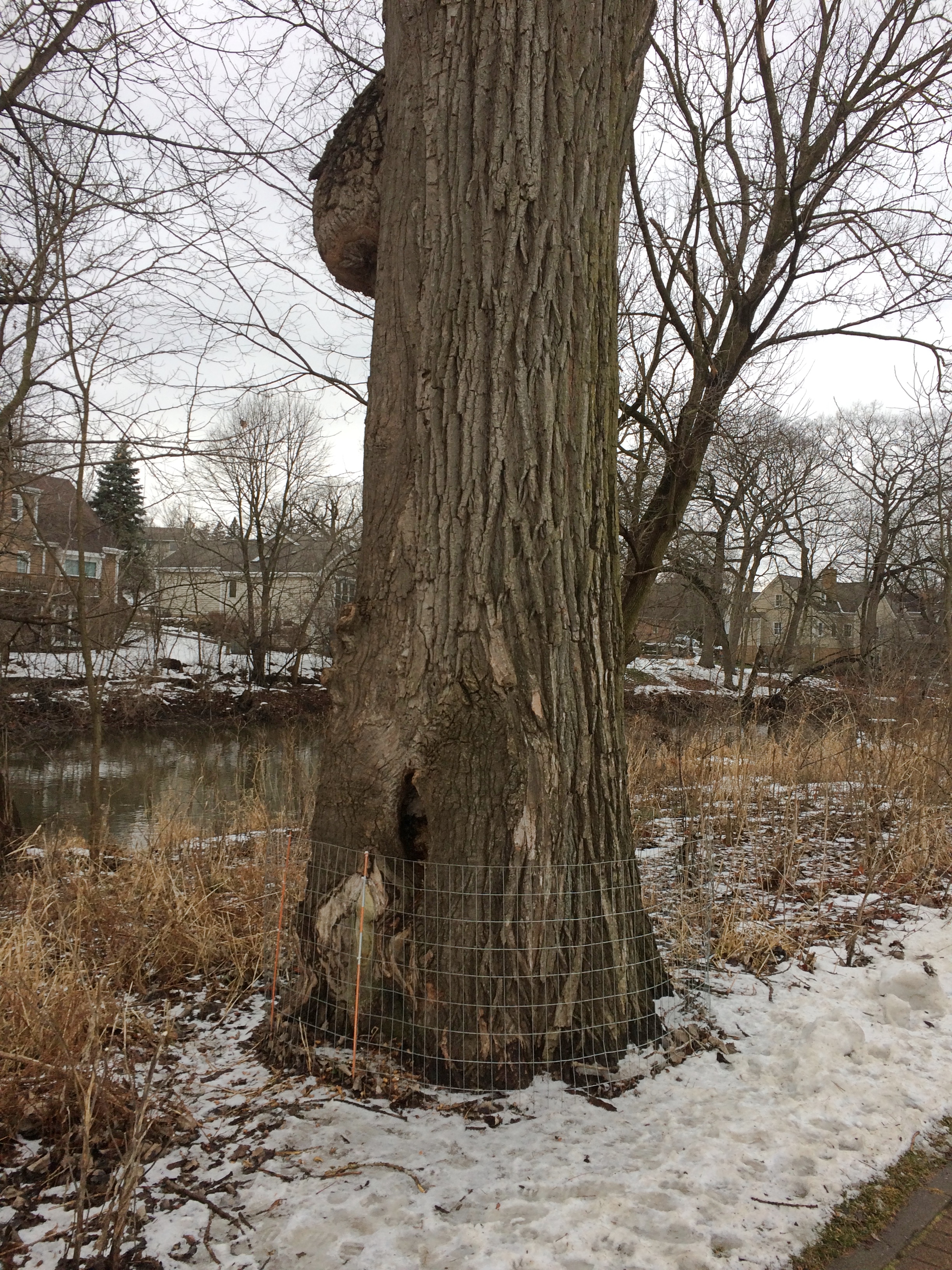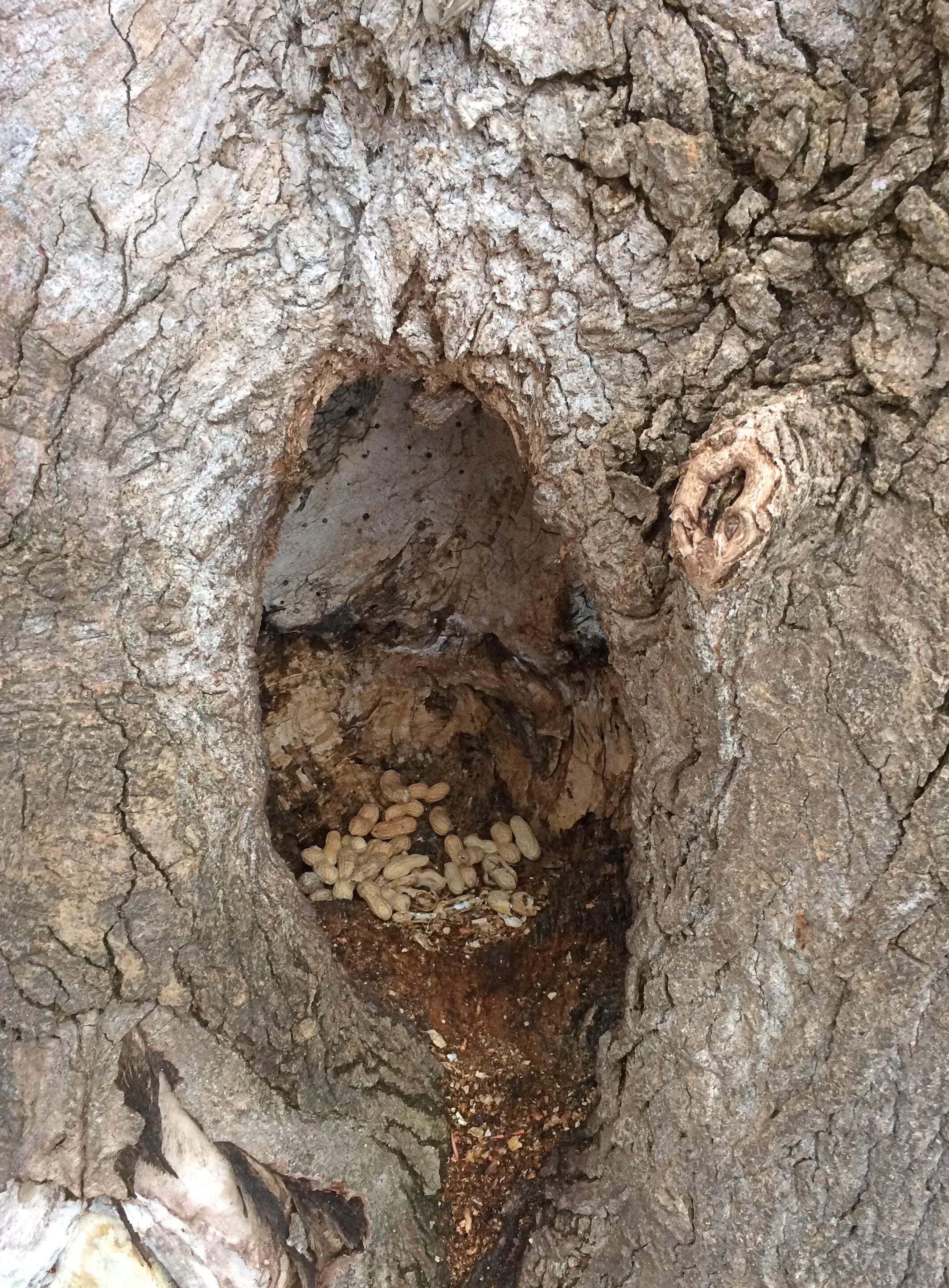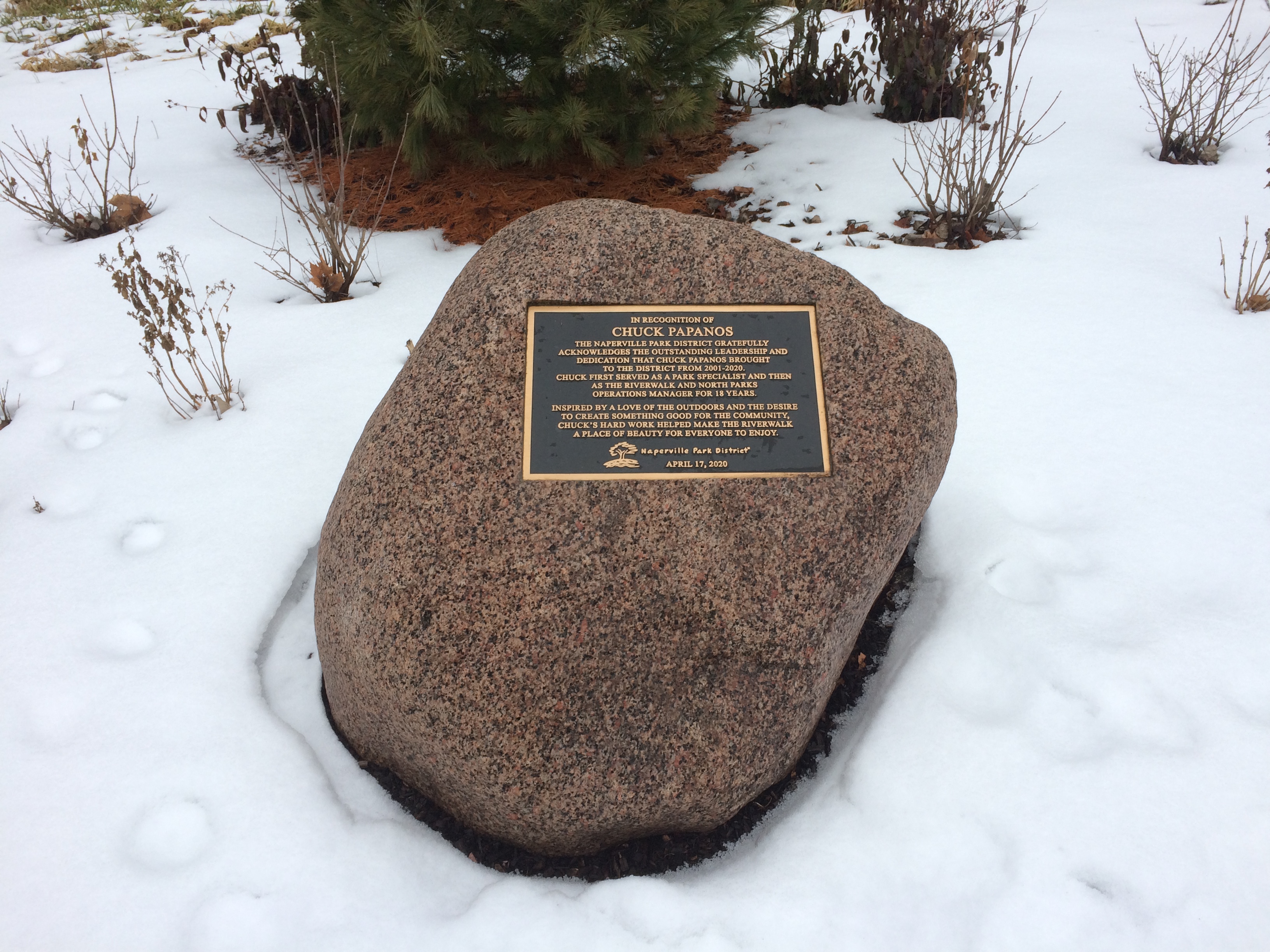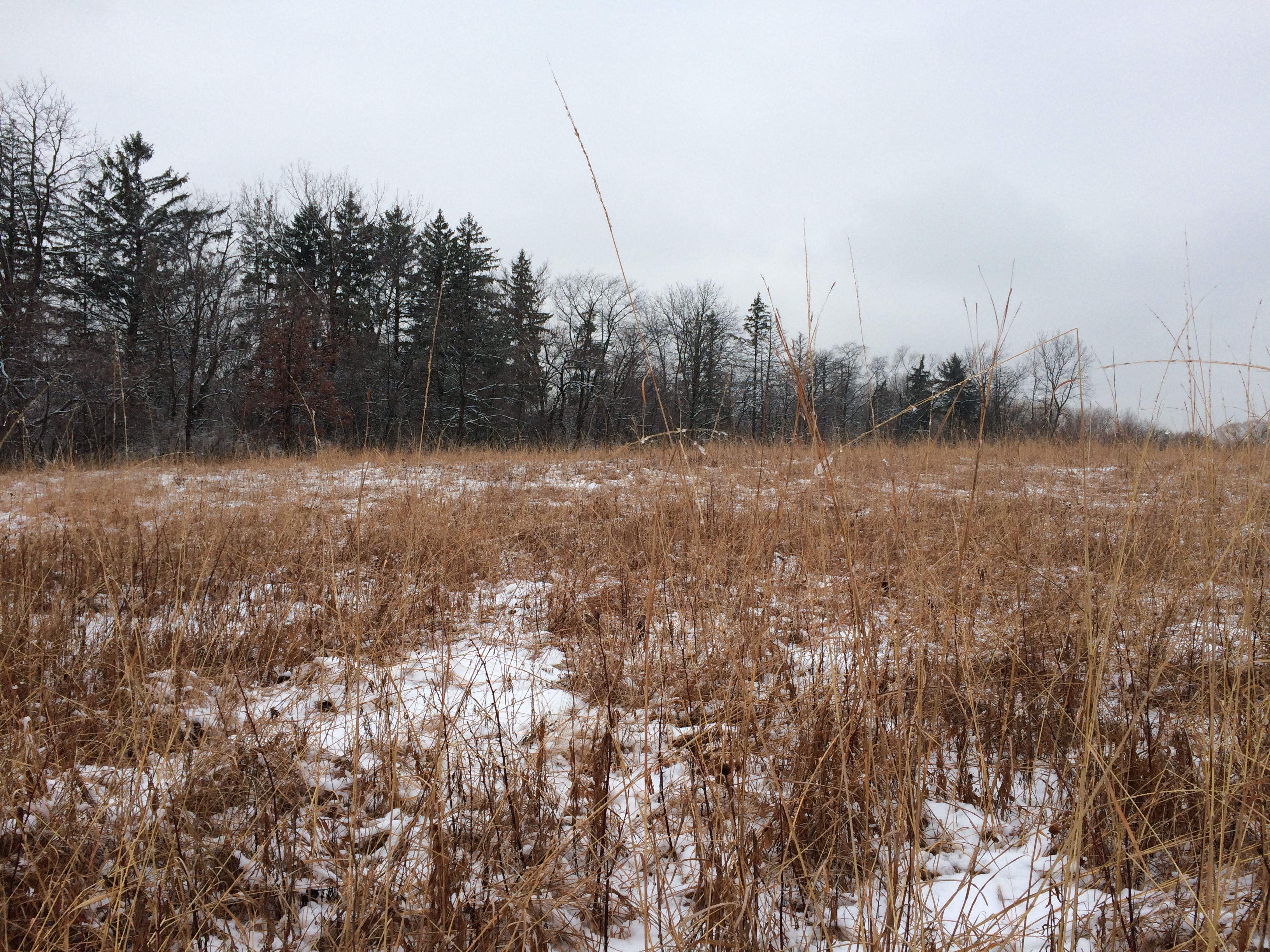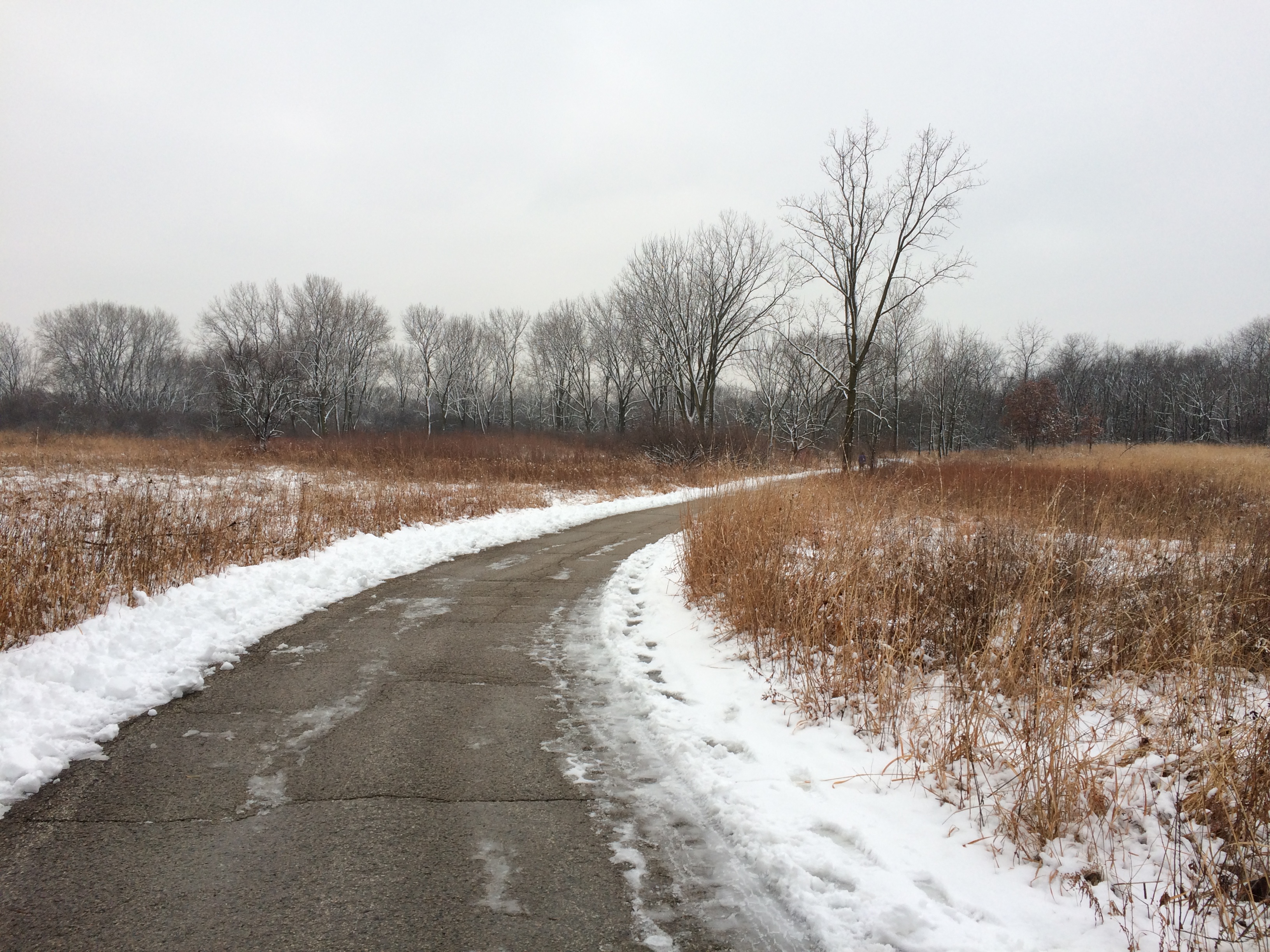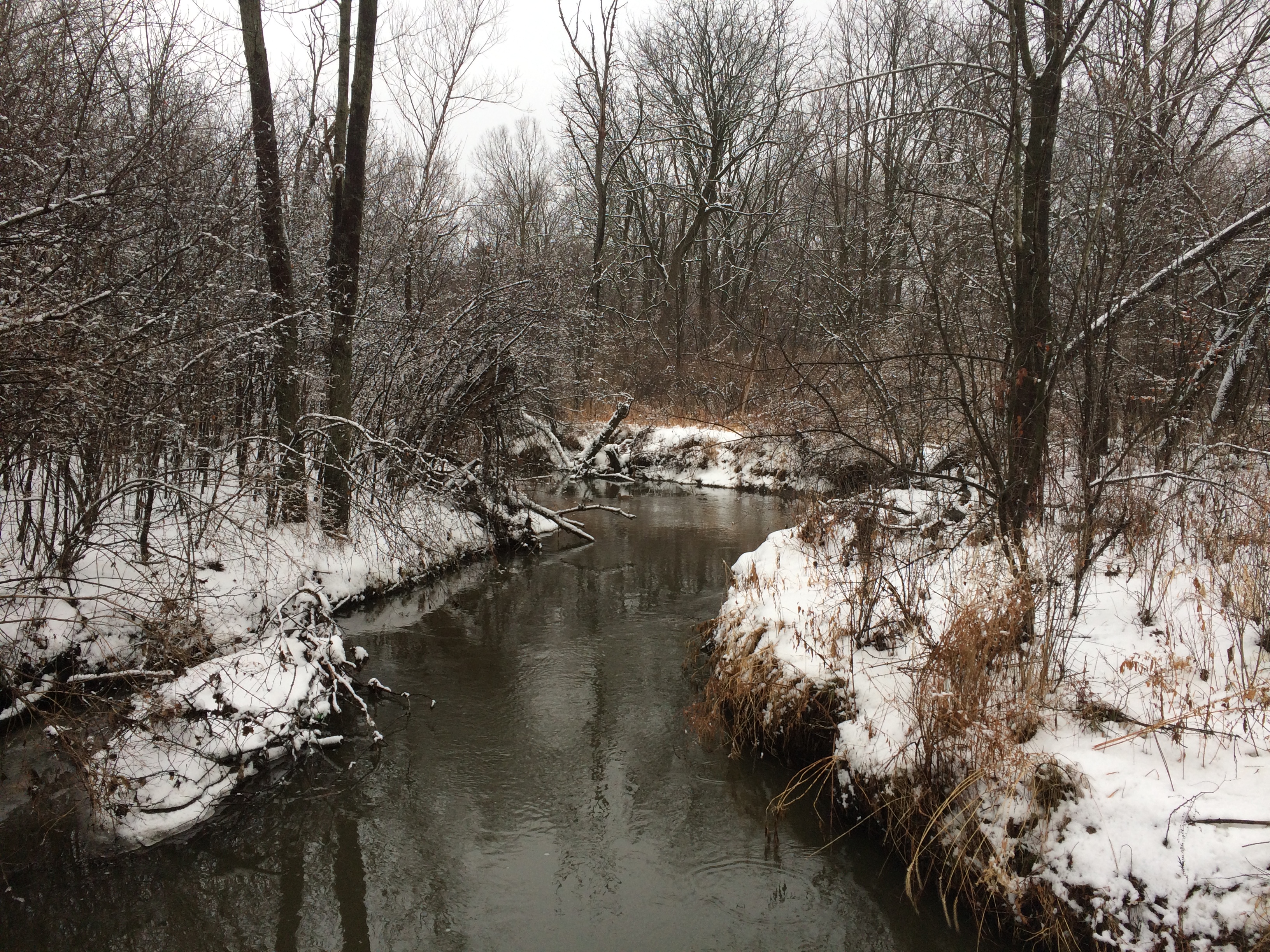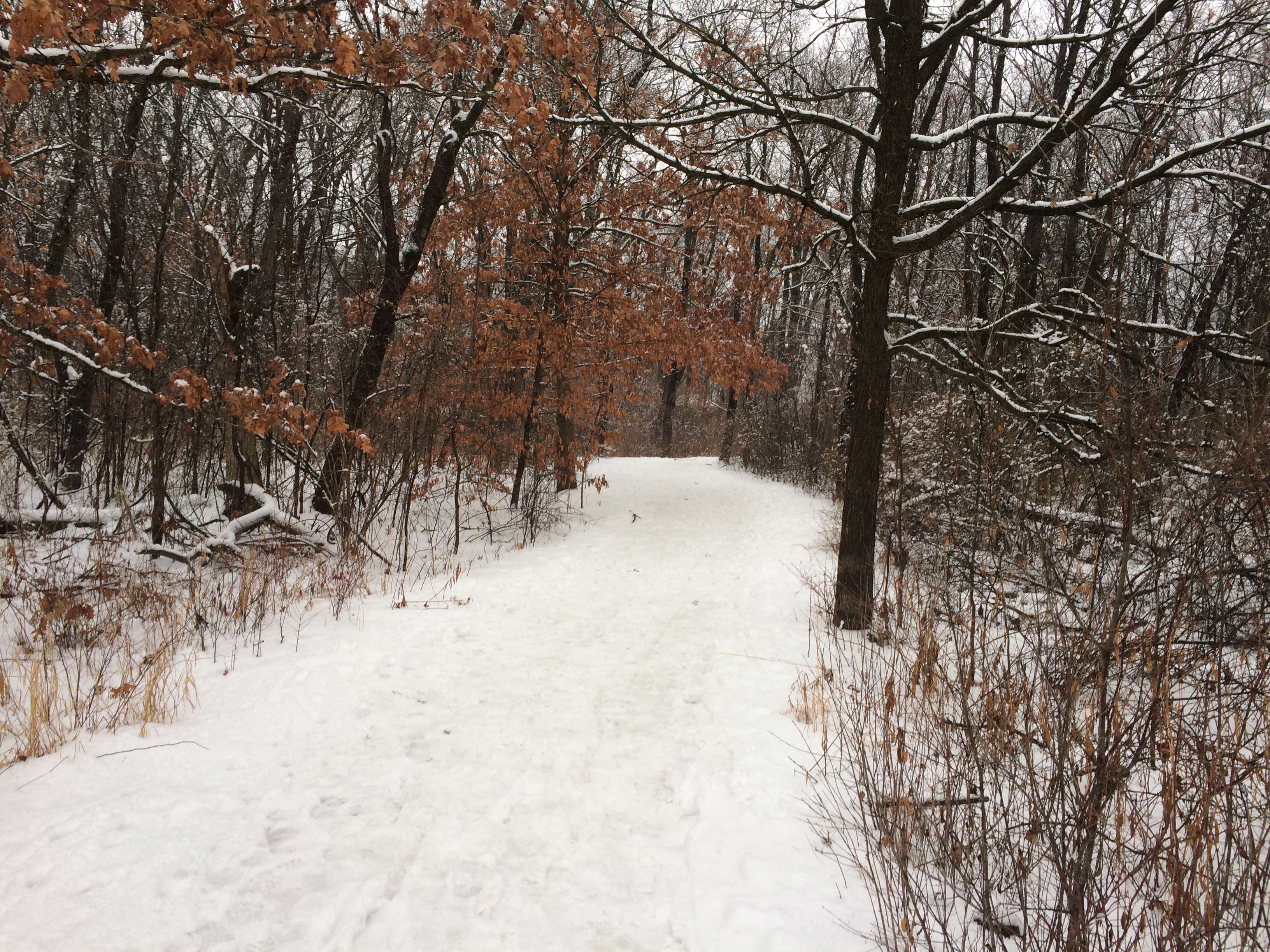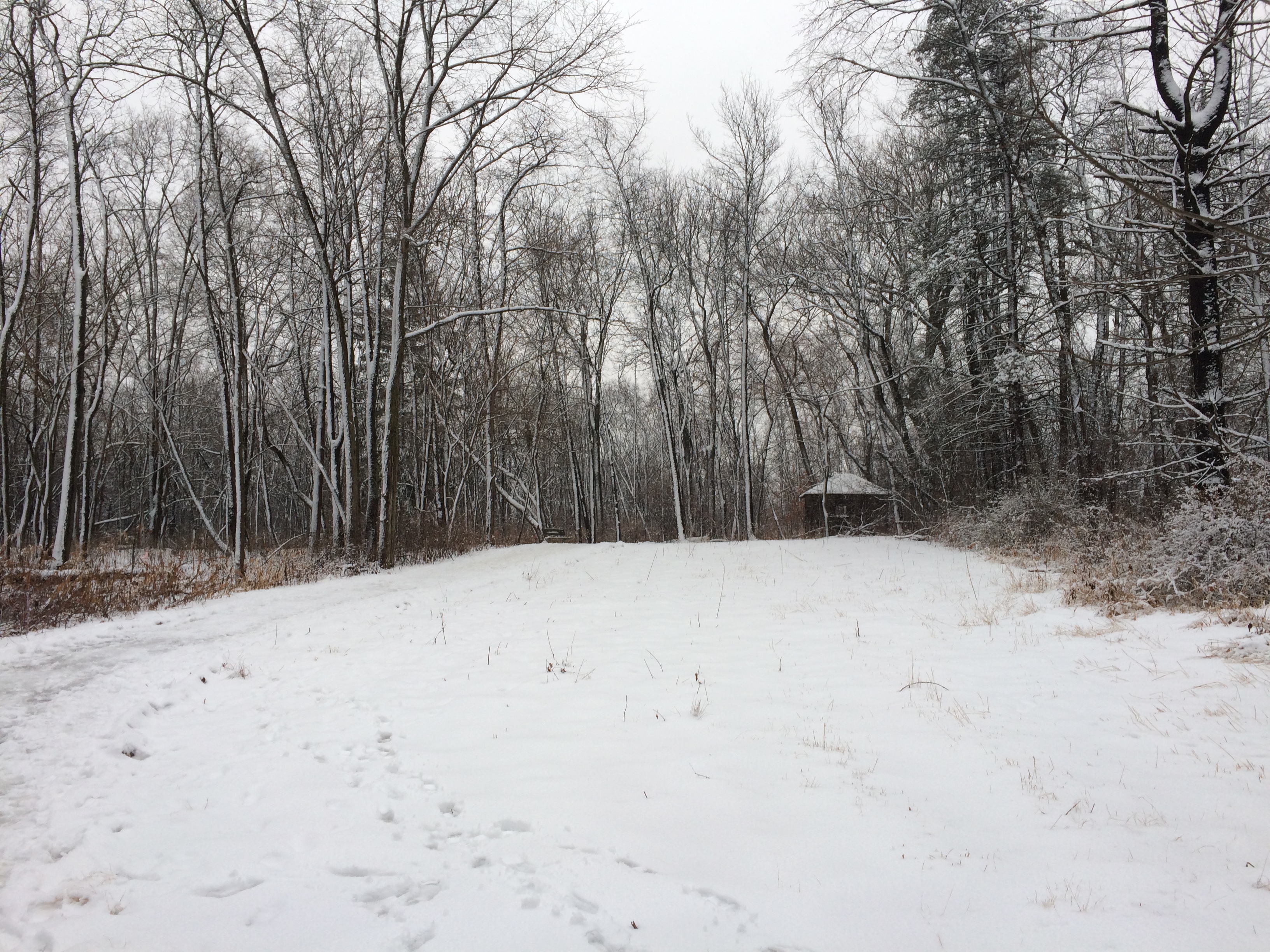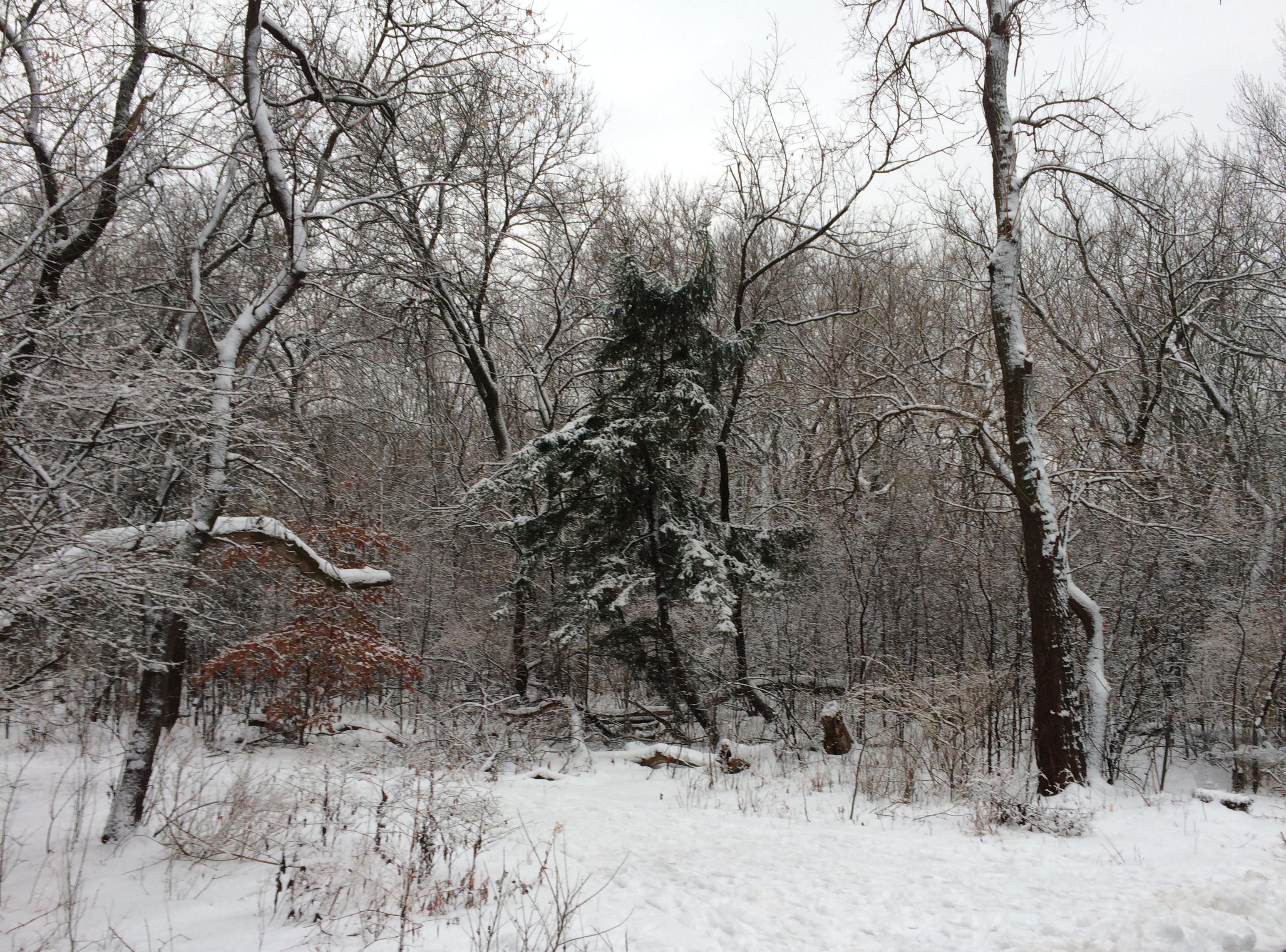Naperville counts as an edge city, in as much as I understand the term. At about 148,000 people, it could stand alone as a small city — third largest in Illinois, as it happens — and it has a mixed economy: the usual large employers such as the local schools and a hospital, but also Nokia, BP, BMO Harris and North Central College.
For a suburb, Naperville has a remarkably robust downtown core, including retail, office space, and public buildings. After we walked near the river on Saturday, we wandered over to Naperville’s downtown, which isn’t far from the riverwalk.
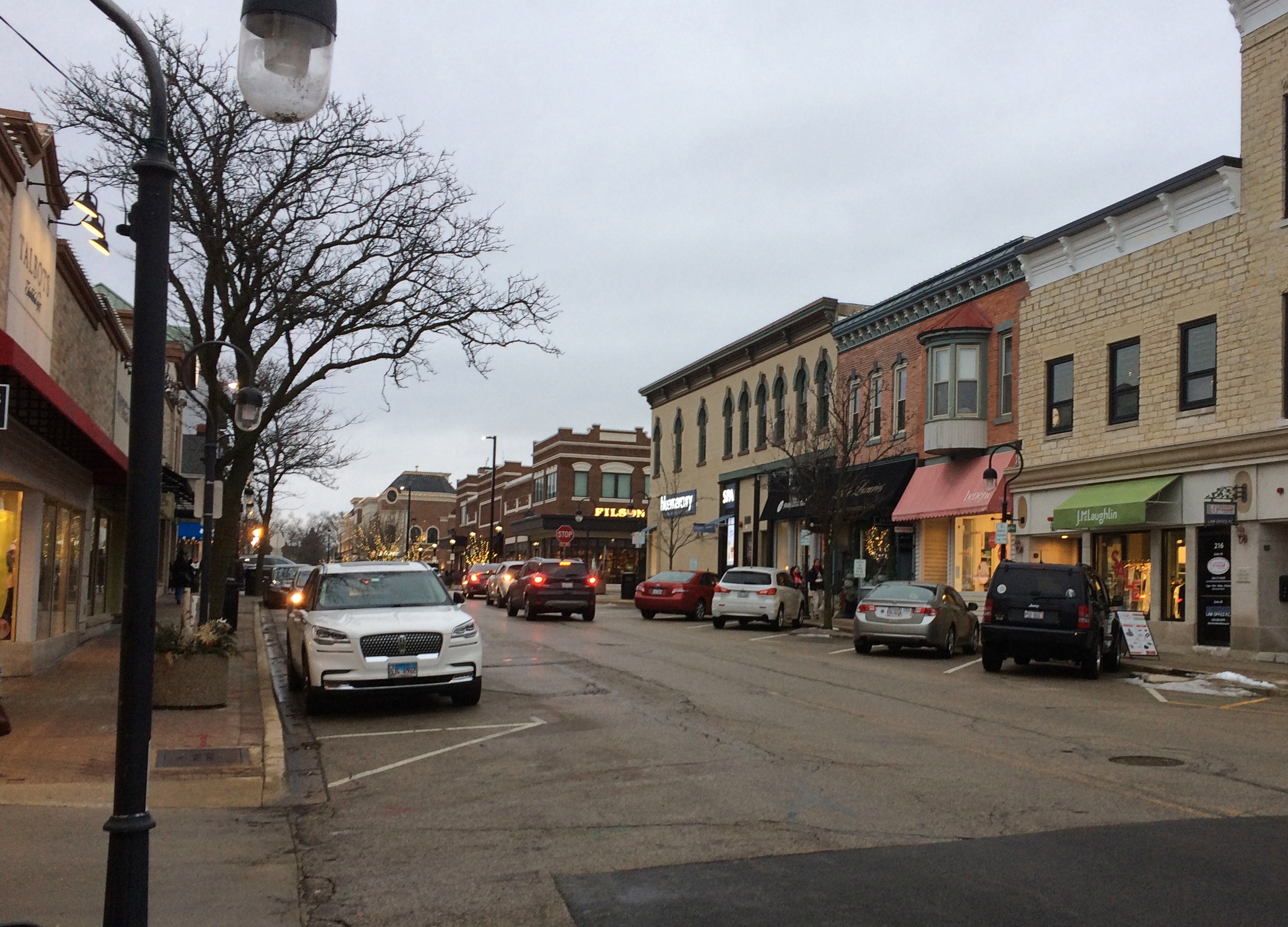
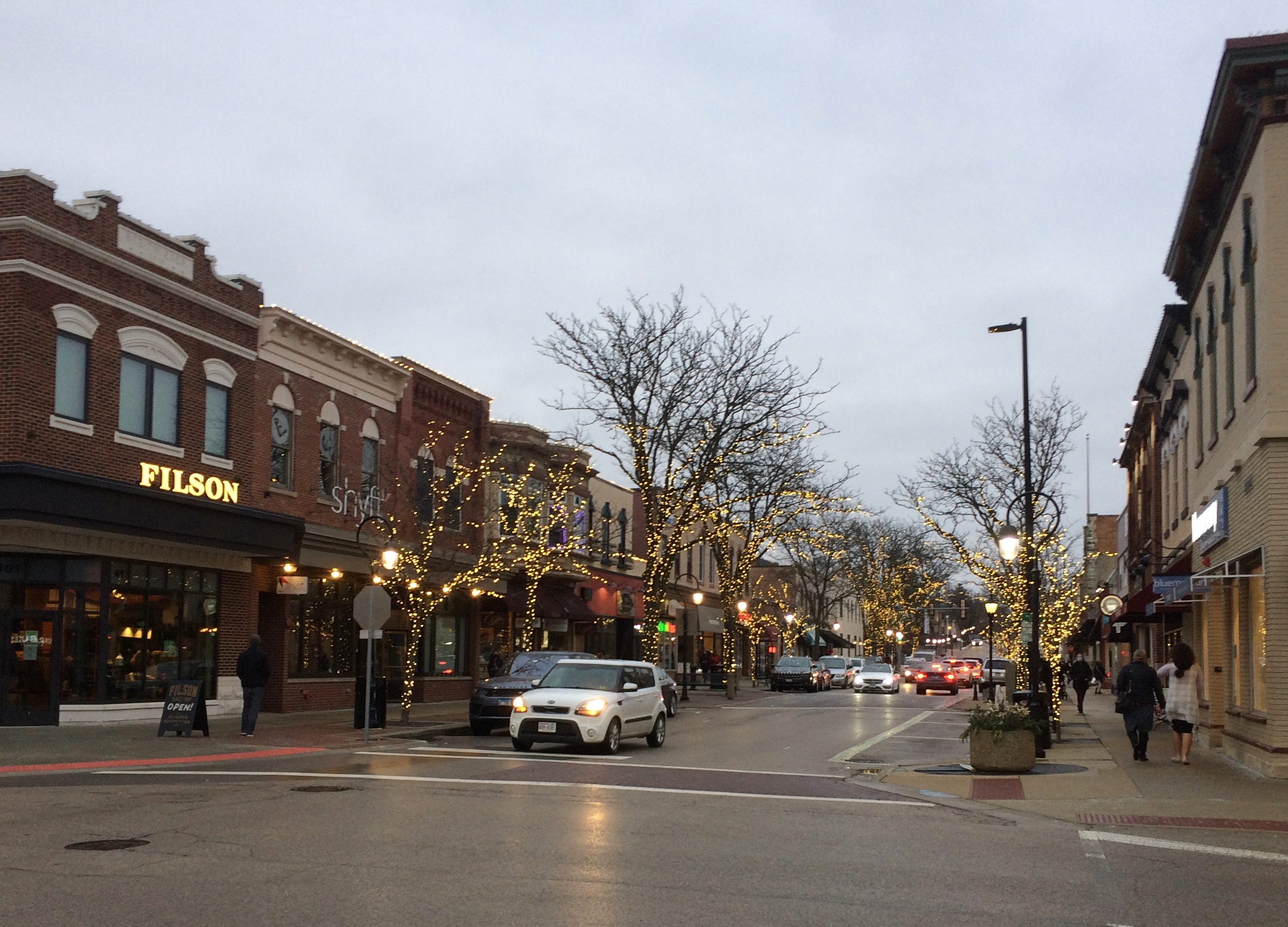 One reason that downtown has been able to grow, I’ve read, is that long ago the village made sure that the area has a lot of free parking. Want people to drive to your relatively dense town, stop and spend money? Provide free parking. Is that sustainable? I don’t know. Maybe it won’t really be until we all drive electric cars. But for now that brings people in, and encourages them to linger. No worries about feeding the meter.
One reason that downtown has been able to grow, I’ve read, is that long ago the village made sure that the area has a lot of free parking. Want people to drive to your relatively dense town, stop and spend money? Provide free parking. Is that sustainable? I don’t know. Maybe it won’t really be until we all drive electric cars. But for now that brings people in, and encourages them to linger. No worries about feeding the meter.
So simple, so hard for towns who see parking as a revenue stream to understand. I’ll bet whatever revenue Naperville would have gotten from parking fees is vastly outpaced by property tax and sales tax revenue generated by its robust downtown.
Of course, it probably isn’t that simple. Except I have a hunch that it is.
Robust, but not everything’s good, as you’d expect. These are hard times.
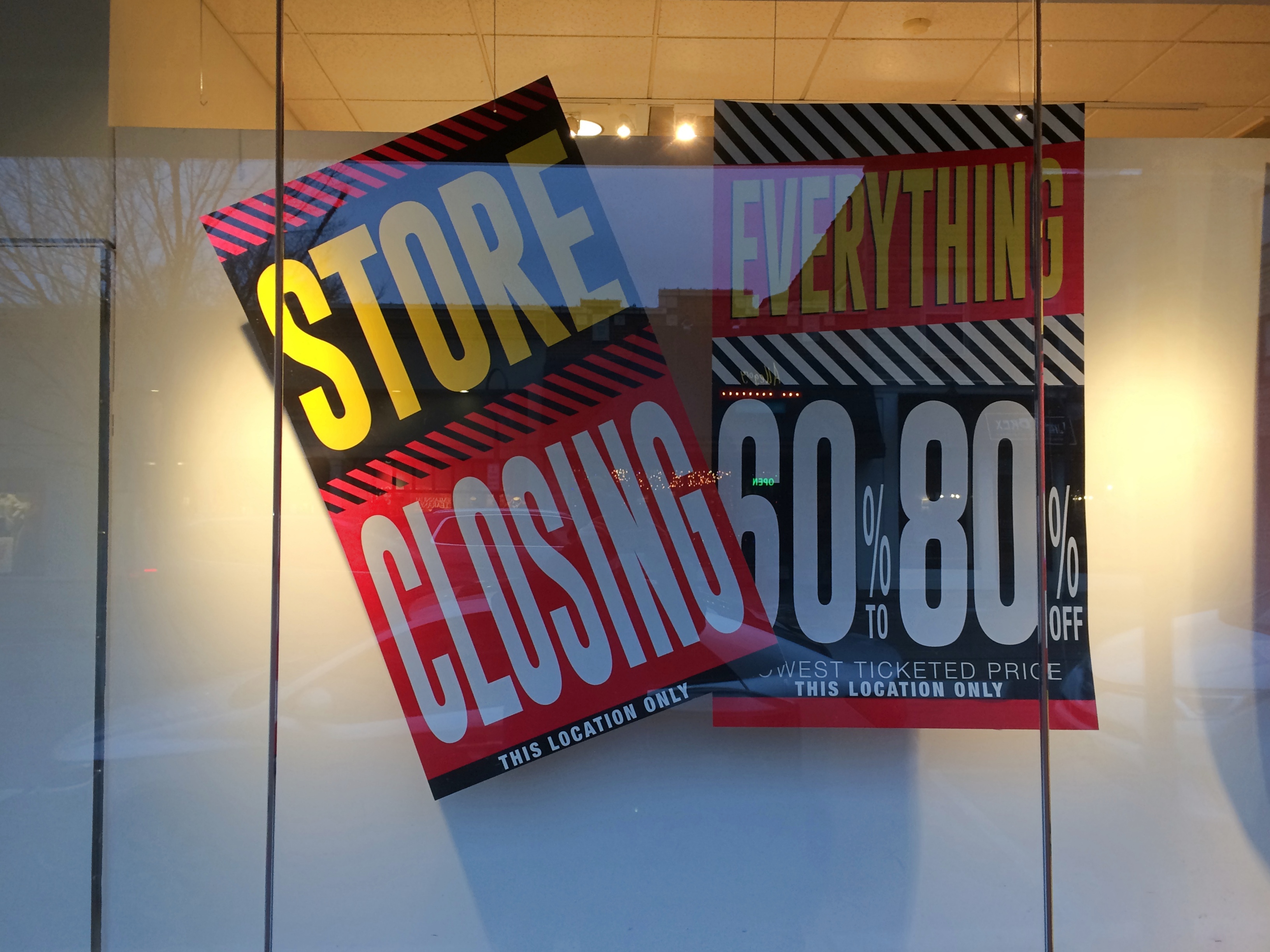 There was (to me) a surprising amount of public art downtown, the legacy of a recent public art initiative. For instance, there’s an alley off S. Main St., “Rubin’s Way,” that sports long, twin murals.
There was (to me) a surprising amount of public art downtown, the legacy of a recent public art initiative. For instance, there’s an alley off S. Main St., “Rubin’s Way,” that sports long, twin murals.
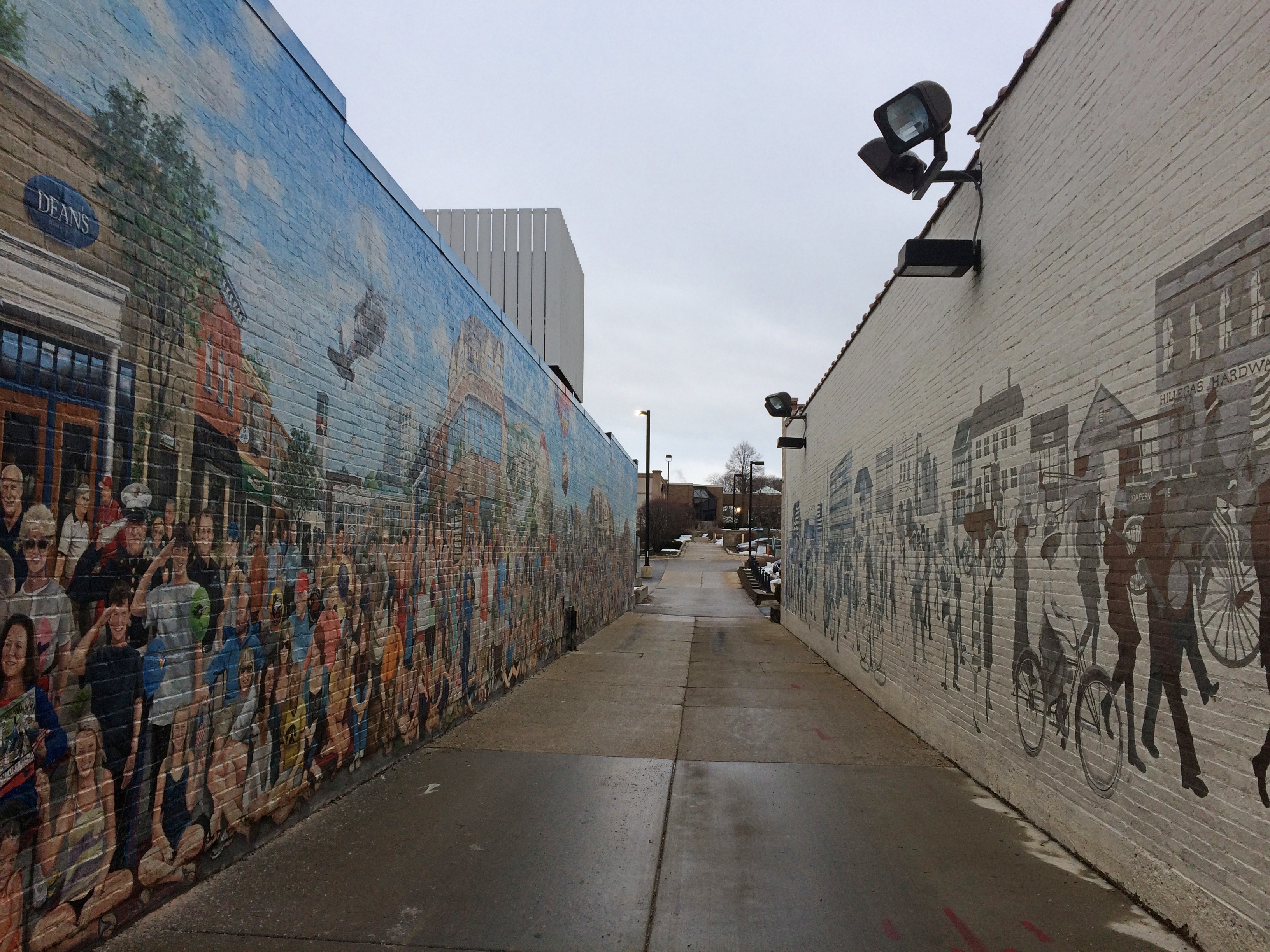 One seems to depict idealized modern Naperville.
One seems to depict idealized modern Naperville.
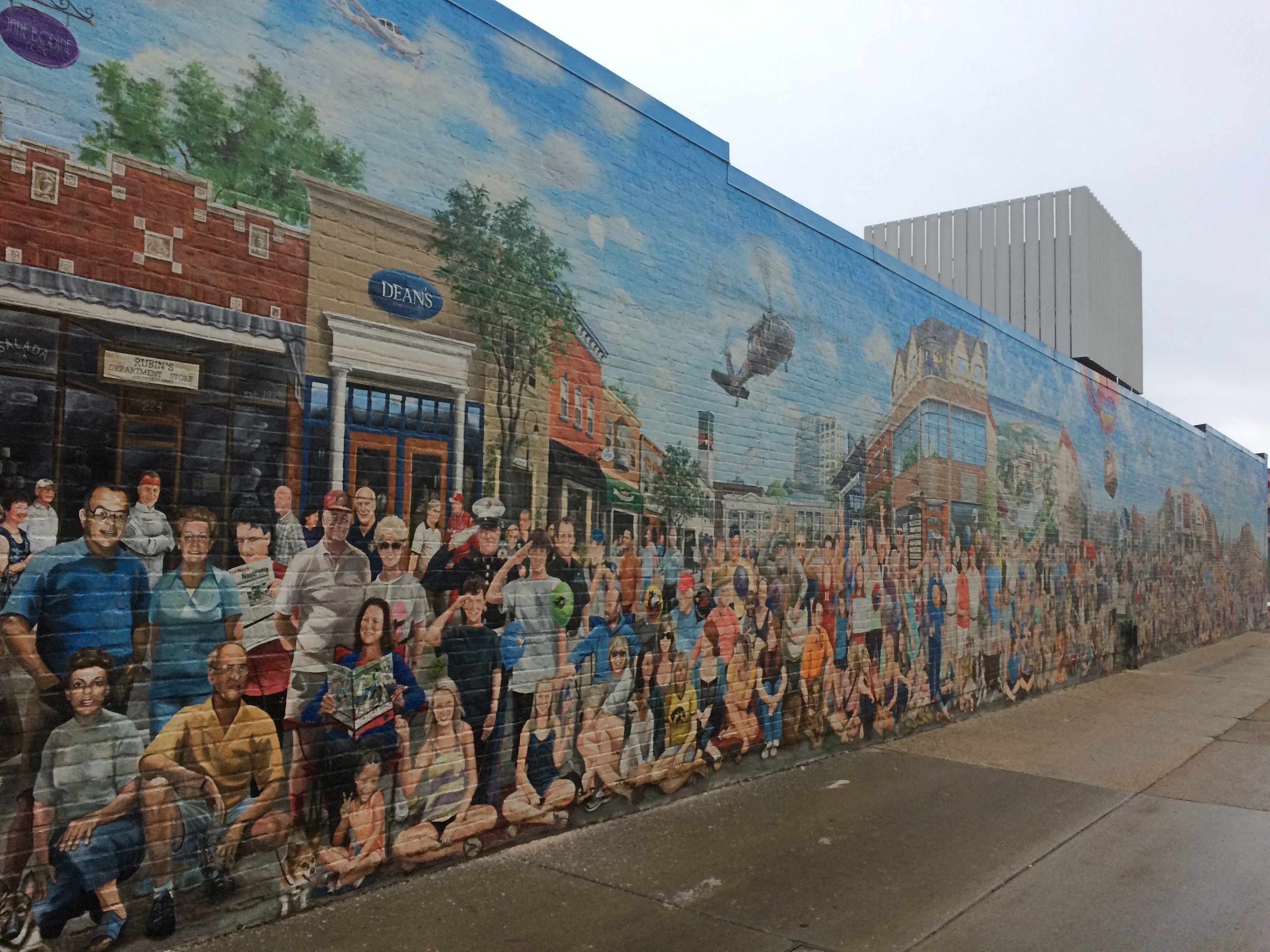
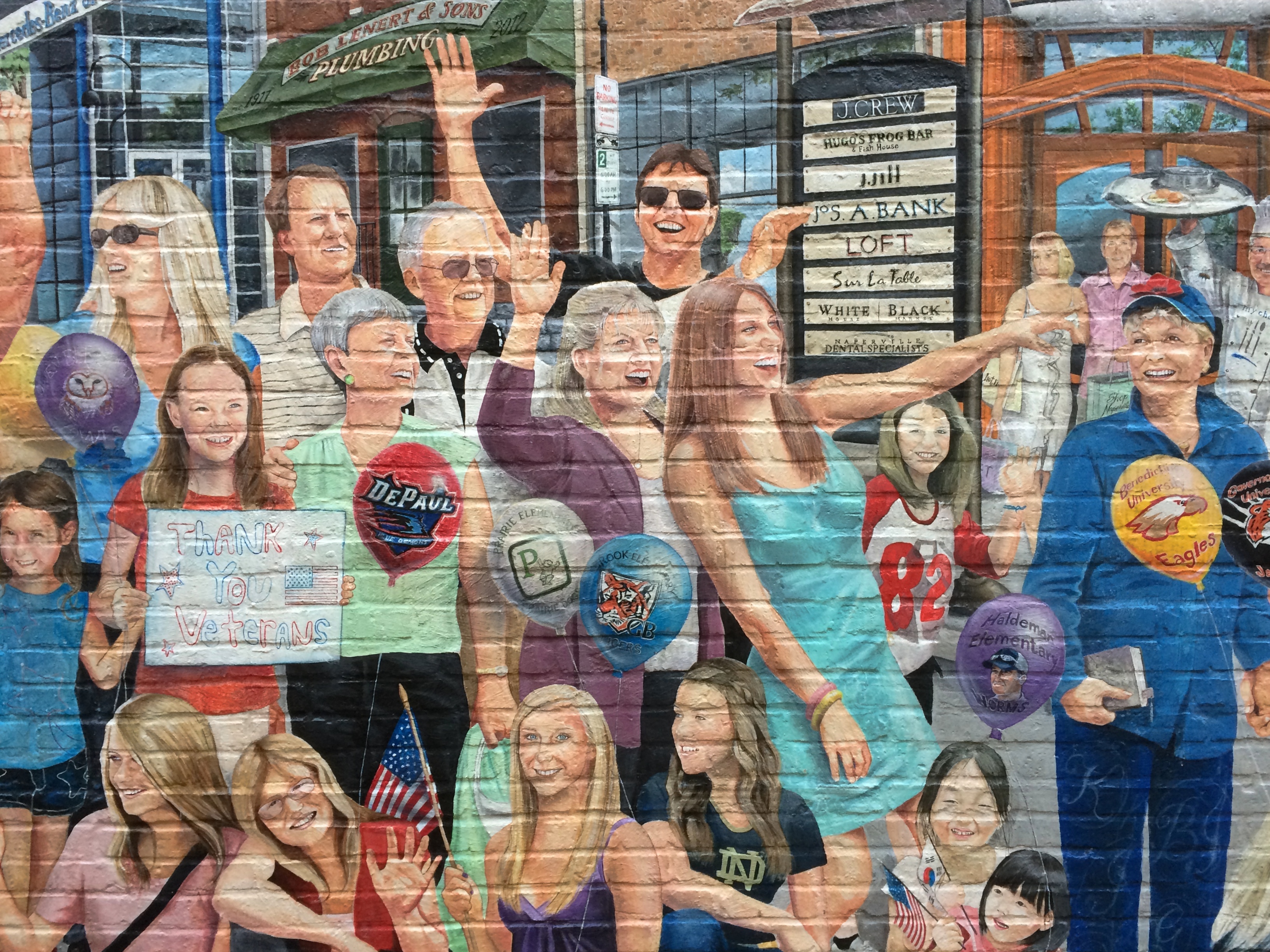 The other an idealized past Naperville.
The other an idealized past Naperville.
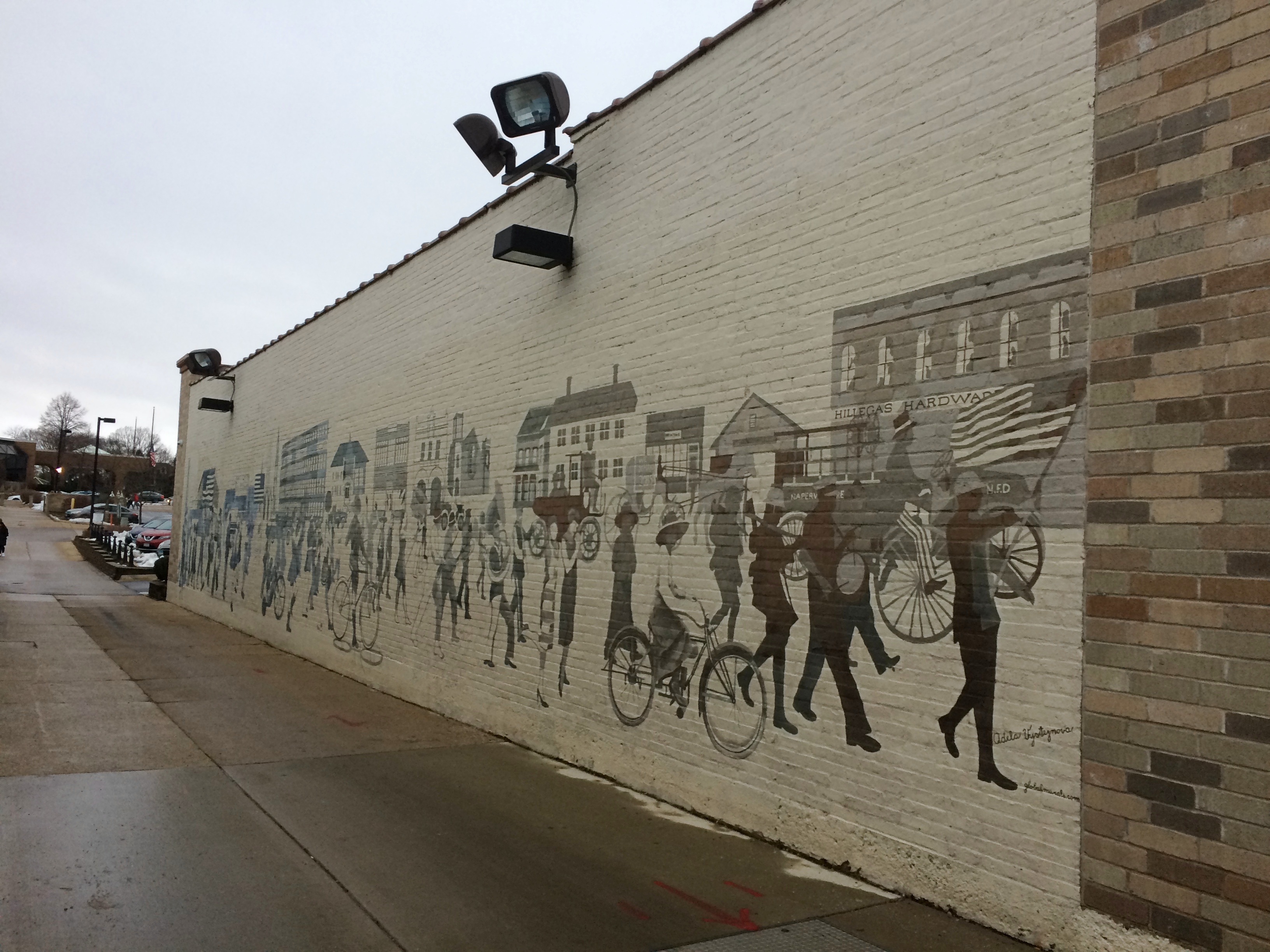
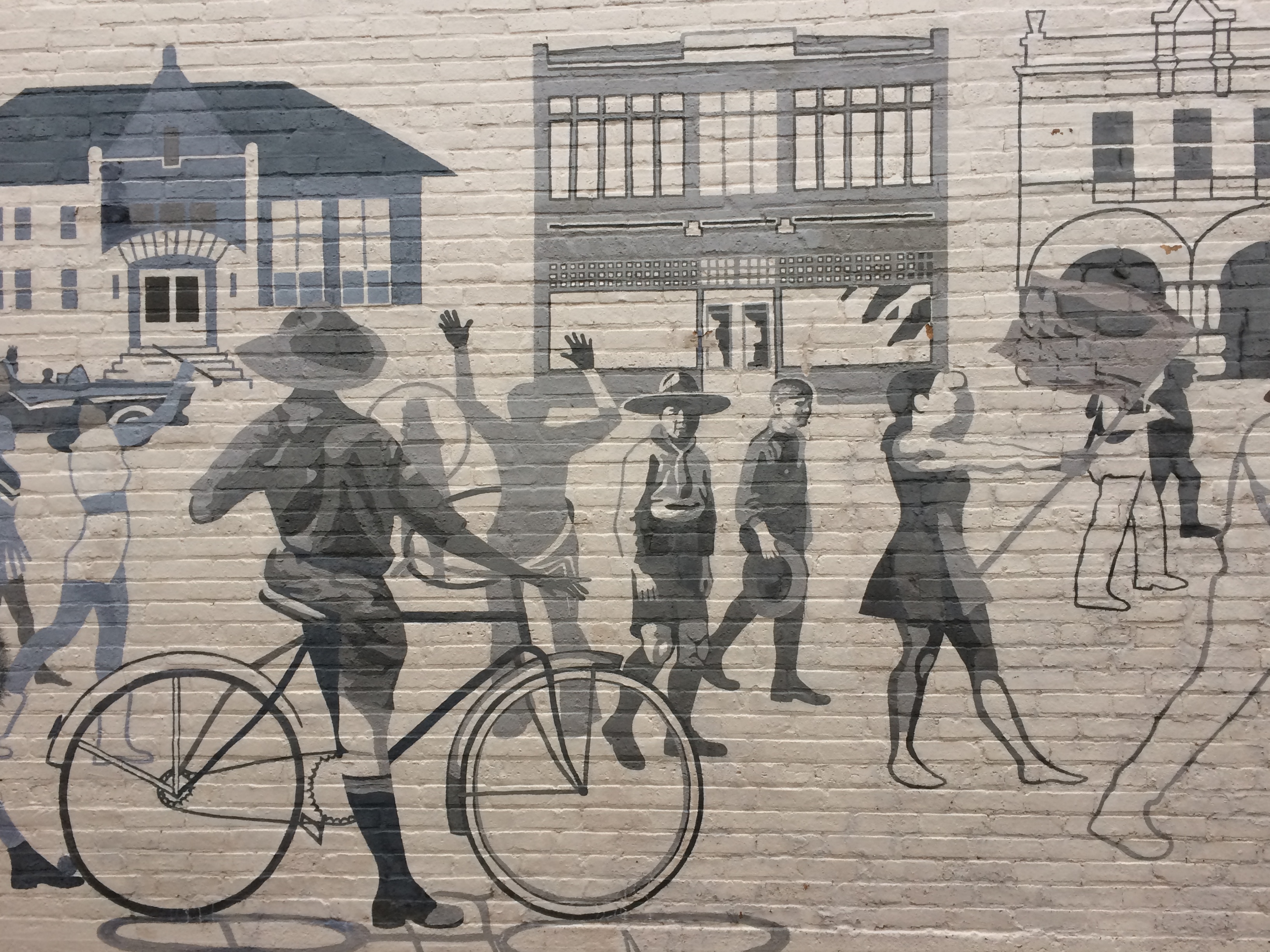 “The mural is part of the nonprofit Naperville Century Walk public art initiative and depicts a crowd watching a parade go by. One of the artists, Diosdado ‘Dodie’ Mondero, told the Naperville Sun in 2012 the work is ‘Normal Rockwell-inspired,’ ” the Chicago Tribune reports. Yep.
“The mural is part of the nonprofit Naperville Century Walk public art initiative and depicts a crowd watching a parade go by. One of the artists, Diosdado ‘Dodie’ Mondero, told the Naperville Sun in 2012 the work is ‘Normal Rockwell-inspired,’ ” the Chicago Tribune reports. Yep.
“At the time of its installation [beginning in 2011], businesses paid $1,000 or more to have their business name on a sign included in the mural, the Sun story said. The cost was $1,000 for a full adult figure, $600 for an adult head and $3,000 for families or groups to be in the scene.”
There’s a petition, with nearly 50,000 signatures now, to add more people of color to the modern wing of the mural.
Not far away, also off Main St., is a mural honoring the Masons, including George Washington and Joseph Naper (1798–1862), founder of Naperville.
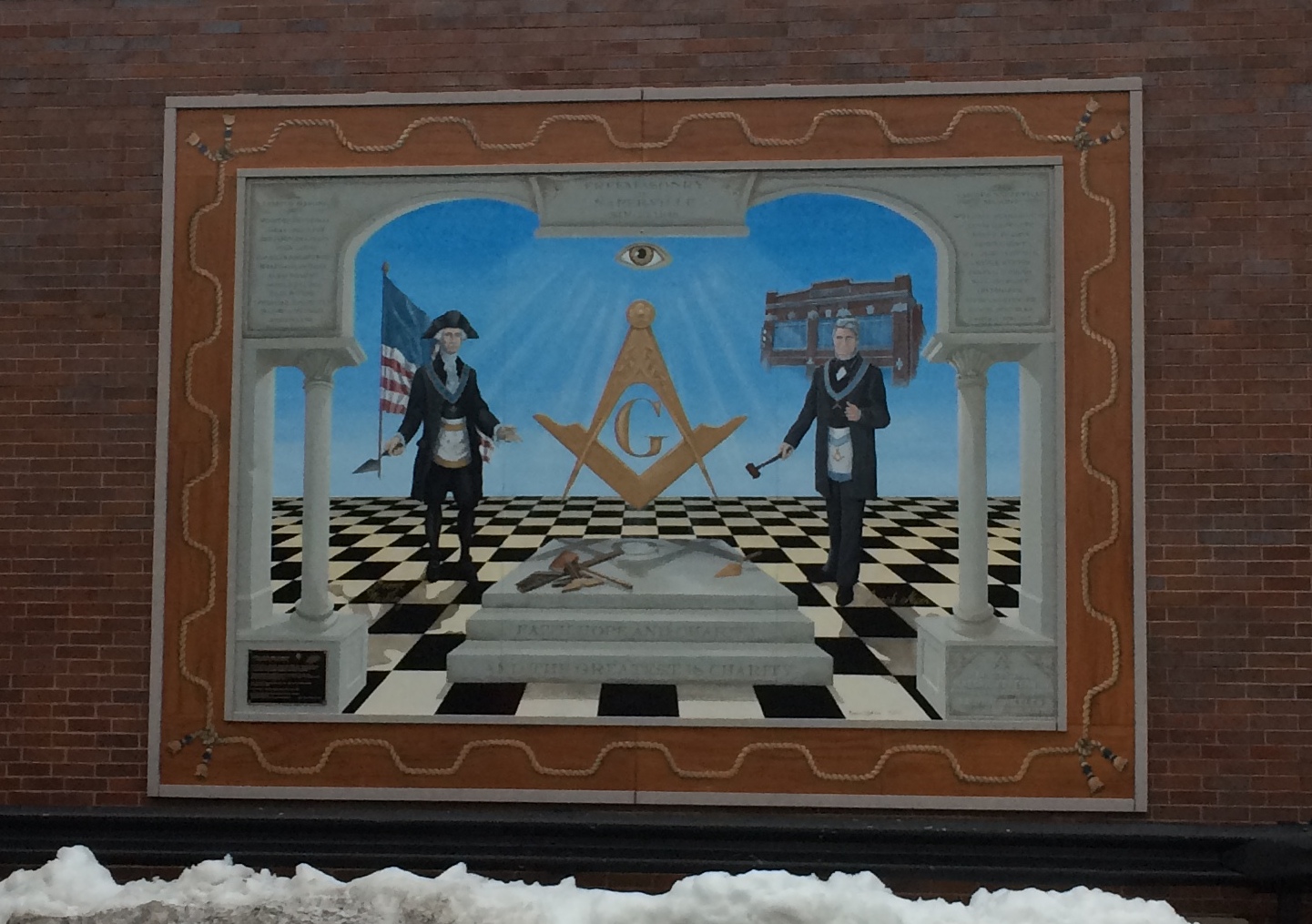 Seems Naper was a mason, too. And much else besides — a real 19th-century CV, to quote Wiki: “early Illinois pioneer, ship captain, shipbuilder, businessman, surveyor, state militia officer, soldier, politician, and city planner.”
Seems Naper was a mason, too. And much else besides — a real 19th-century CV, to quote Wiki: “early Illinois pioneer, ship captain, shipbuilder, businessman, surveyor, state militia officer, soldier, politician, and city planner.”
“Chartered October 2, 1849, Euclid Lodge No. 65 A. F. & A. M. has had a presence throughout downtown Naperville for 170 years, noted Paul Felstrup for the Freemasons during the recent celebration that began with a re-dedication of the Century Walk Masonic Mural ‘Faith, Hope & Charity,’ ” says a site called Pos!tively Naperville.
“Back in 2011, the mural was designed and painted by Naperville artist Marianne Lisson-Kuhn. Formerly gracing the wall at Main and Jefferson outside of Russell’s Dry Cleaners, the mural was relocated to the exterior wall near the intersection of Main Street at Jackson Avenue.”
Also on Main St.
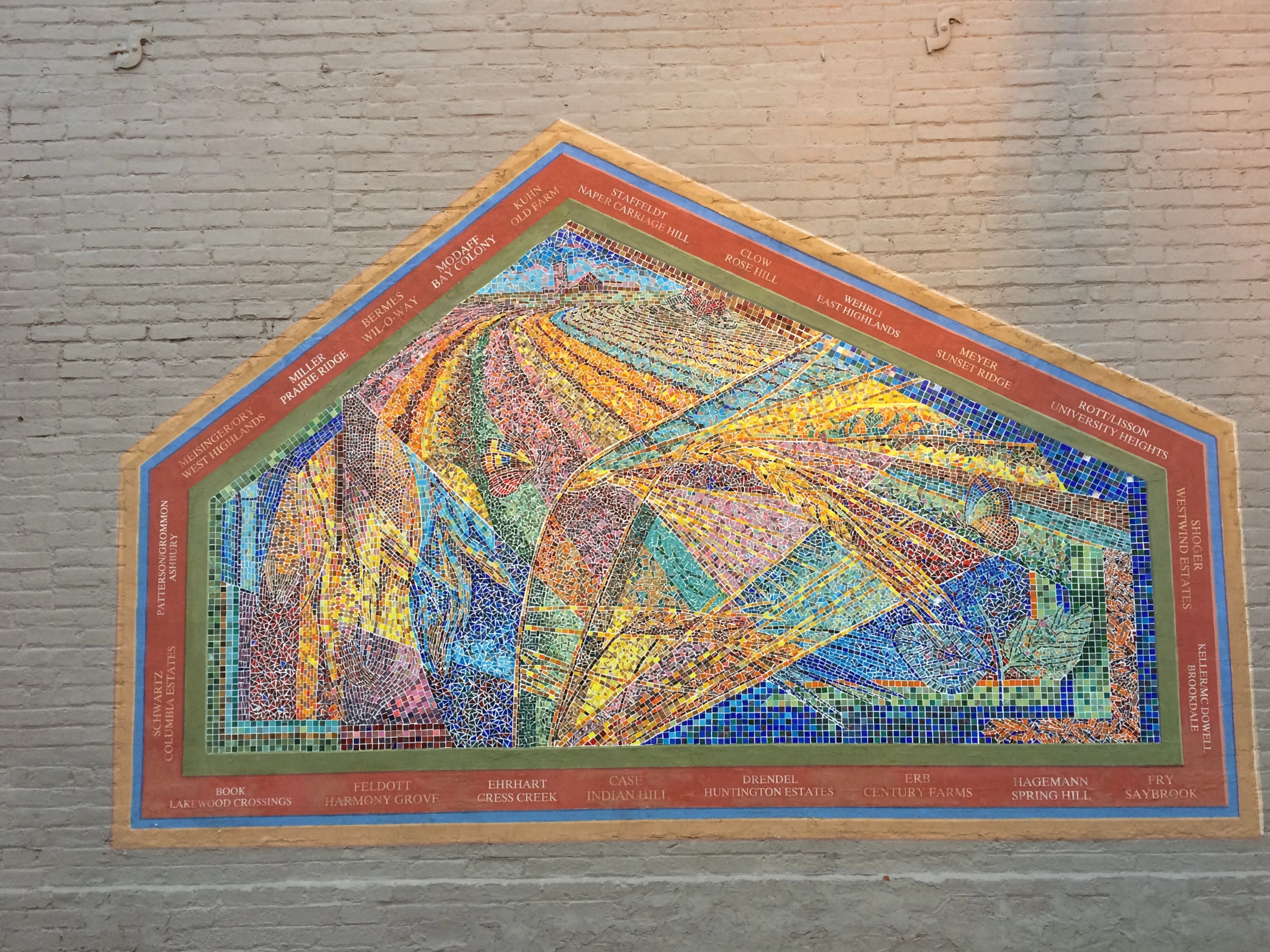 A plaque next it says in part:
A plaque next it says in part:
HEARTLAND HARVEST 1997
Honoring the soybean, oat, wheat, corn and butterfly-filled landscapes that once dominated the area, this Italian glass tile mosaic pays homage to the historic contributions of Naperville’s family farms…
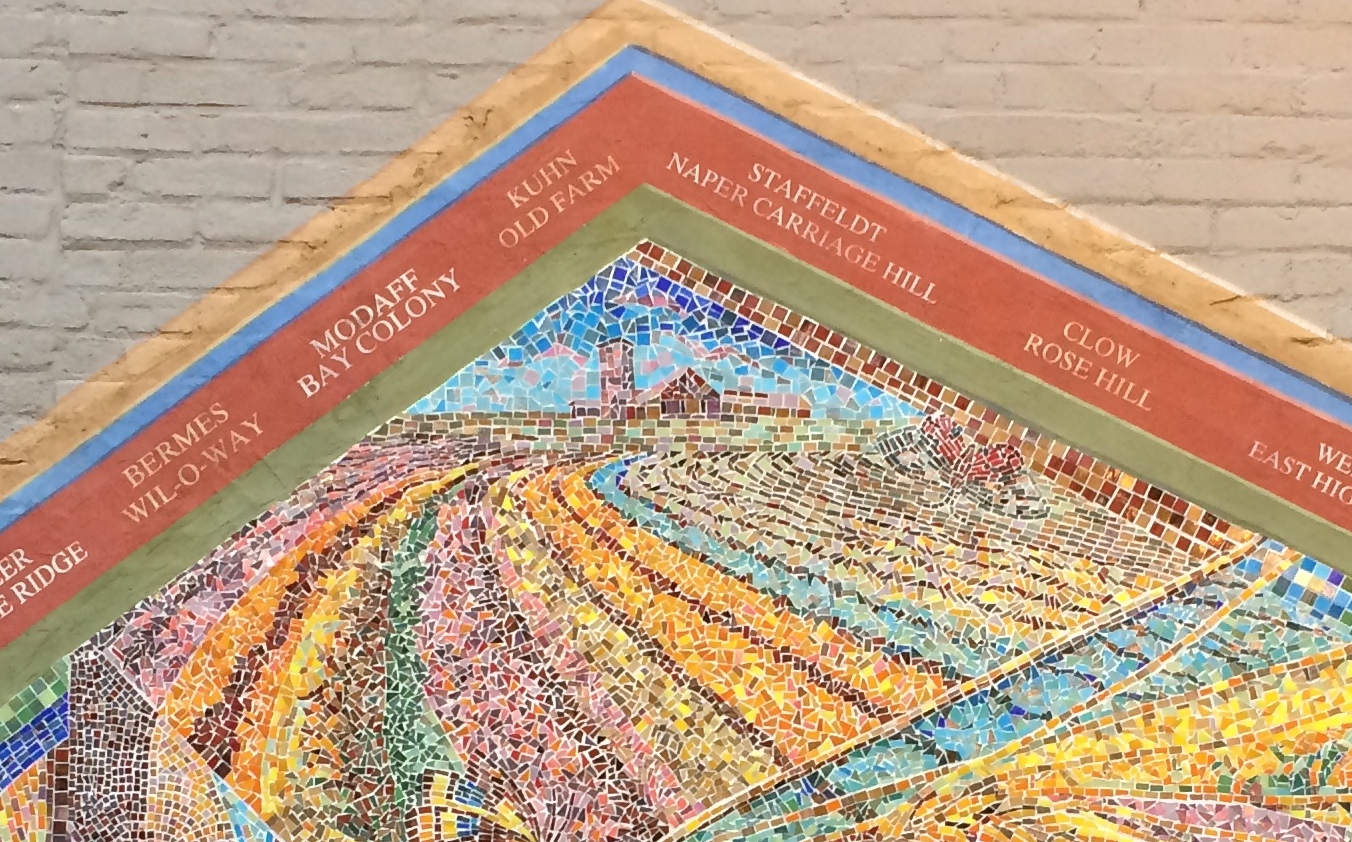
A block to the east on S. Washington St. is an unusual plaque. Developers don’t get much memorializing, but there is one to Norman Rubin (1929-2010).
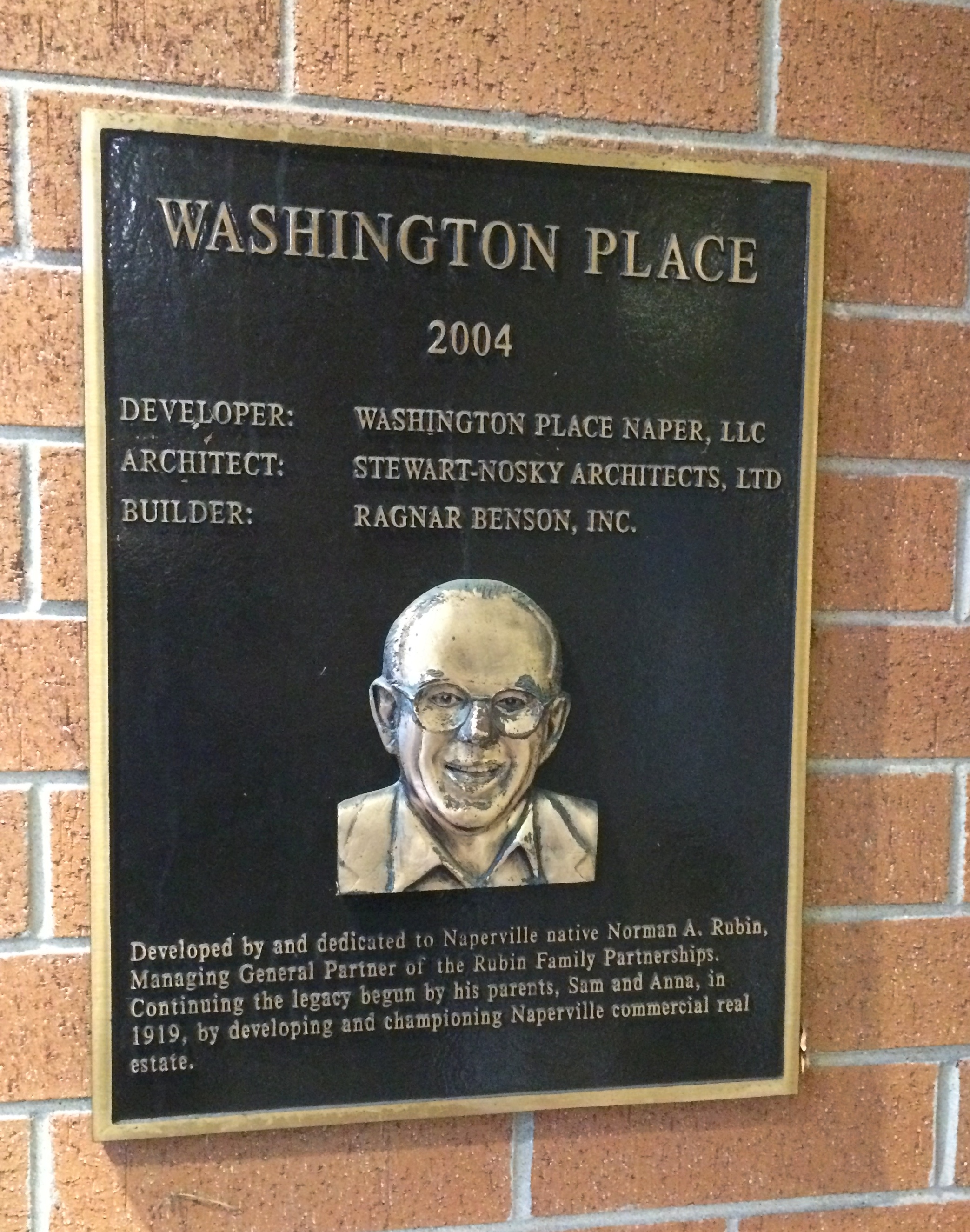 It’s at the entrance to a building called Washington Place, a small retail development of Rubin’s that currently includes Athleta, Banana Republic and Ulta as tenants. Just one of a number of local developments for him, since he was instrumental in making downtown Naperville what it is. Him and free parking.
It’s at the entrance to a building called Washington Place, a small retail development of Rubin’s that currently includes Athleta, Banana Republic and Ulta as tenants. Just one of a number of local developments for him, since he was instrumental in making downtown Naperville what it is. Him and free parking.
